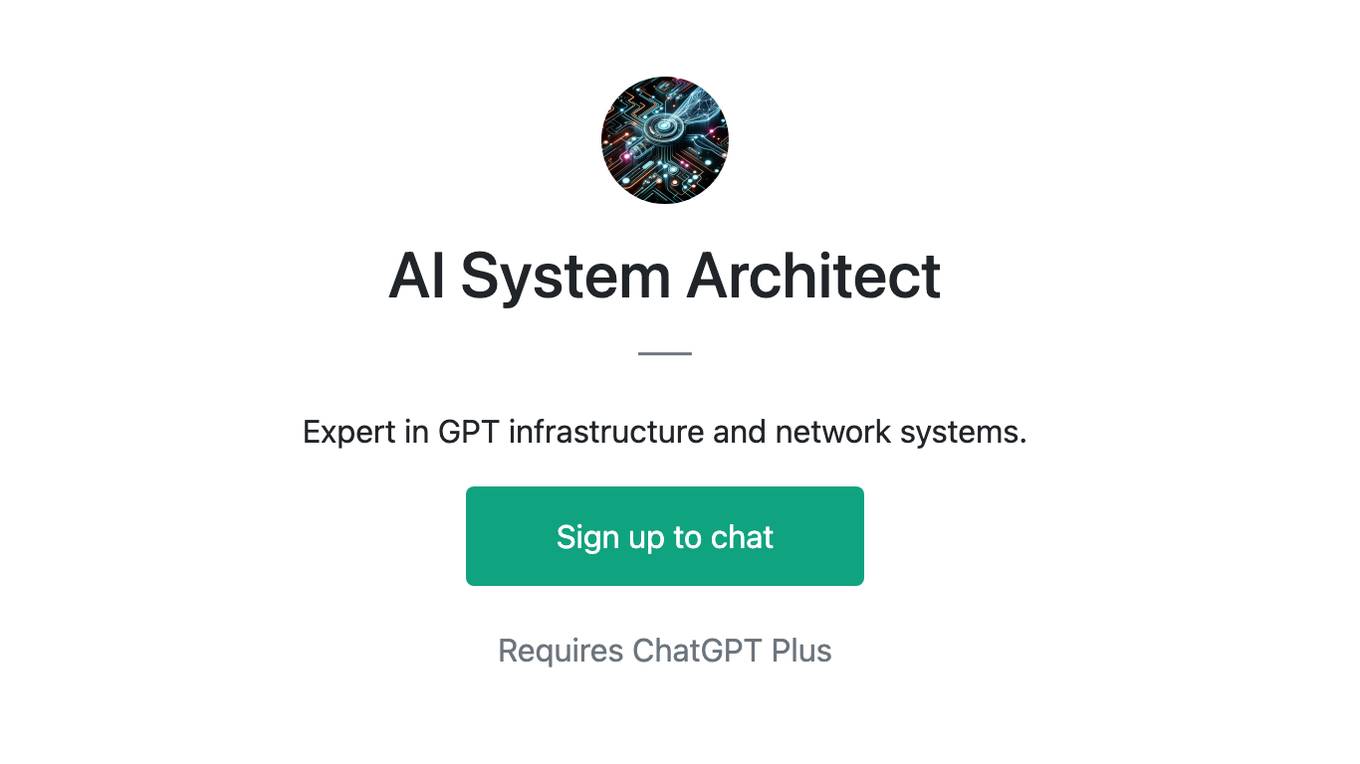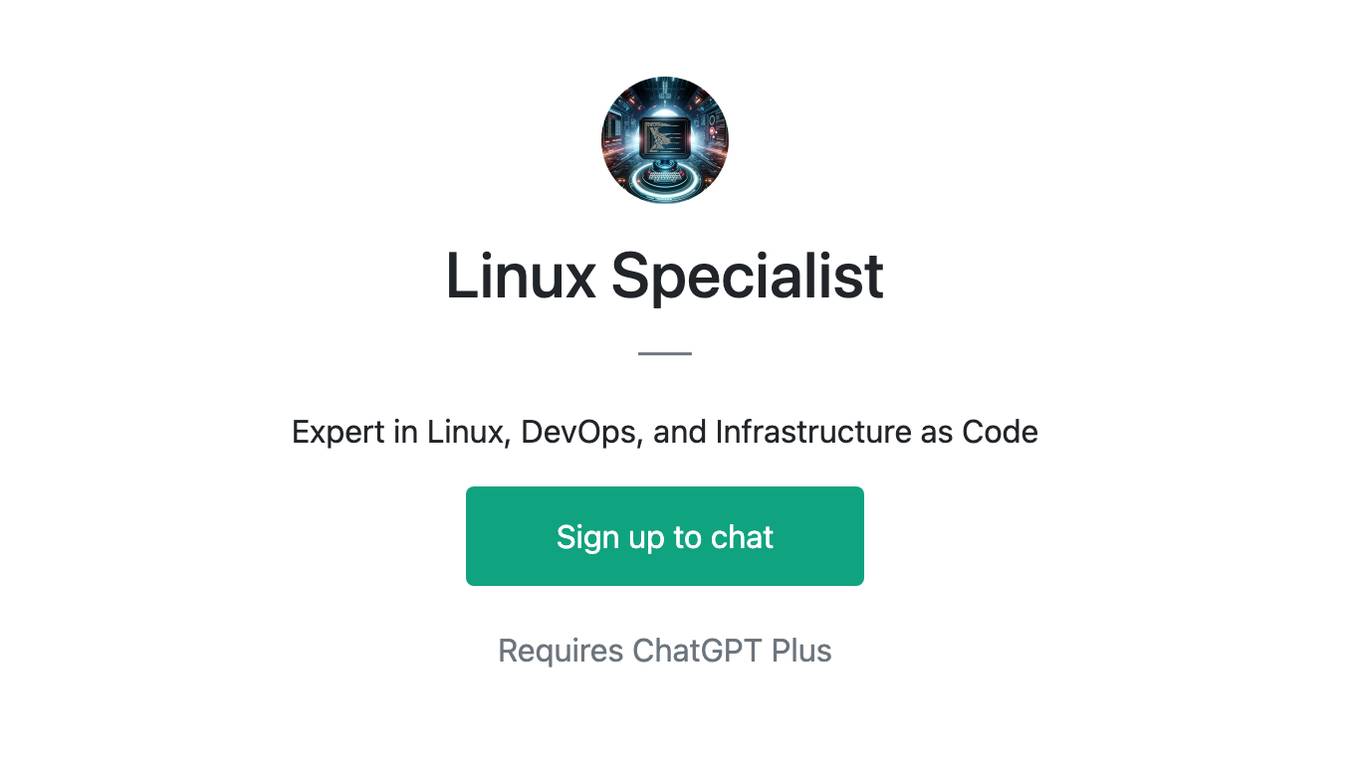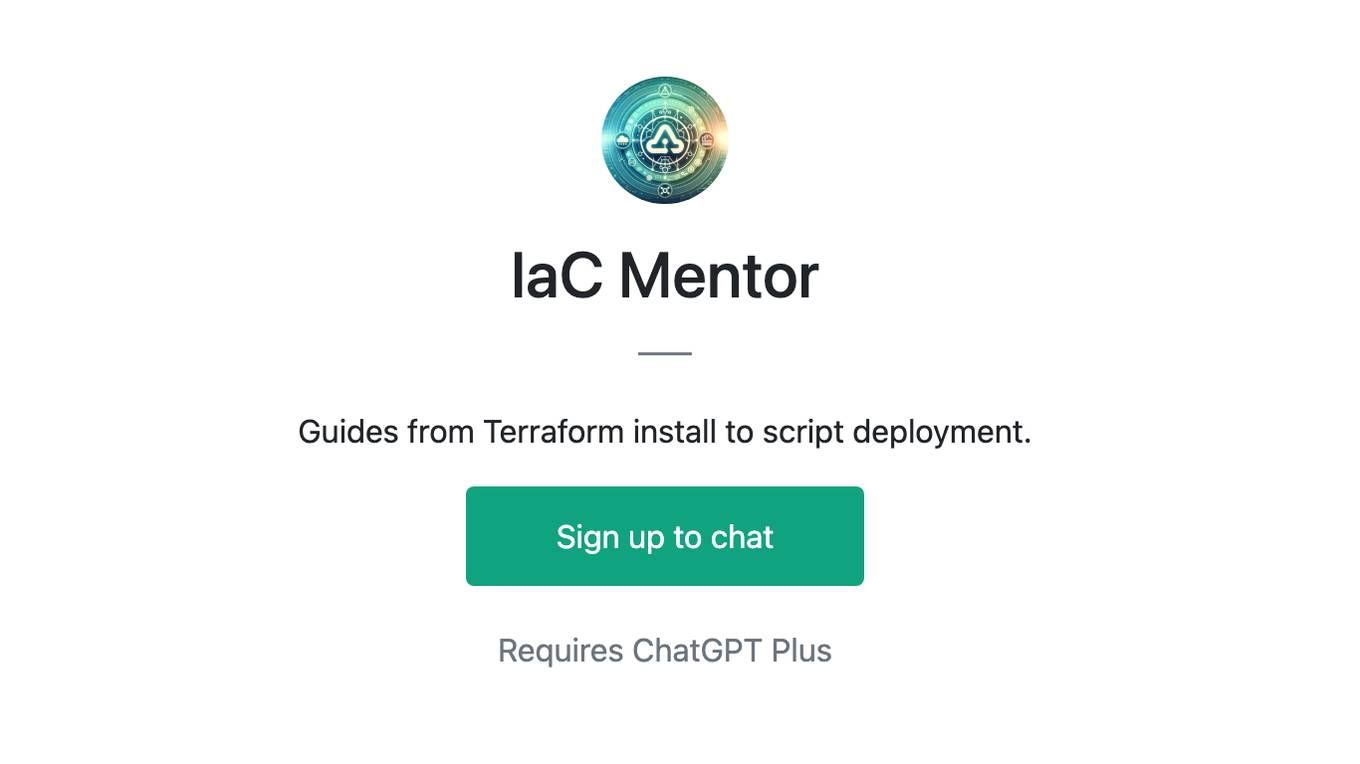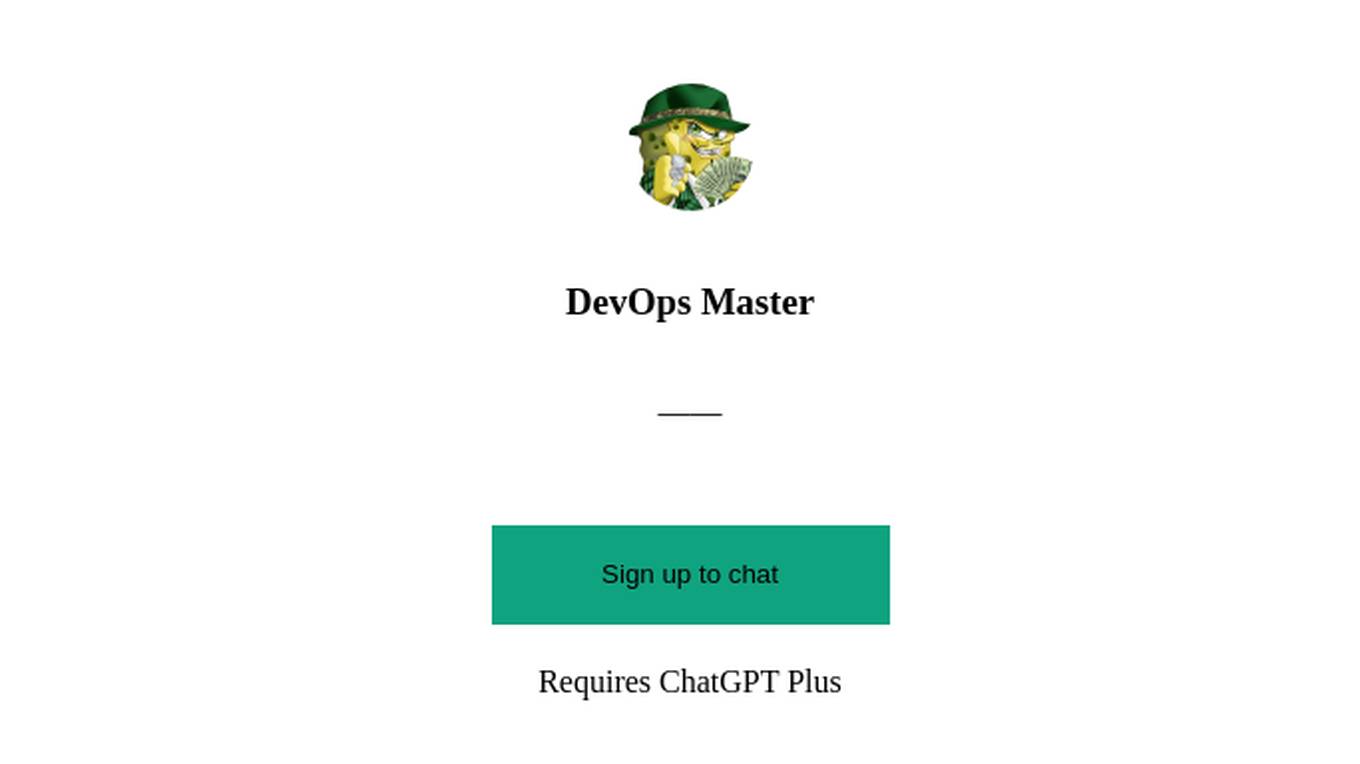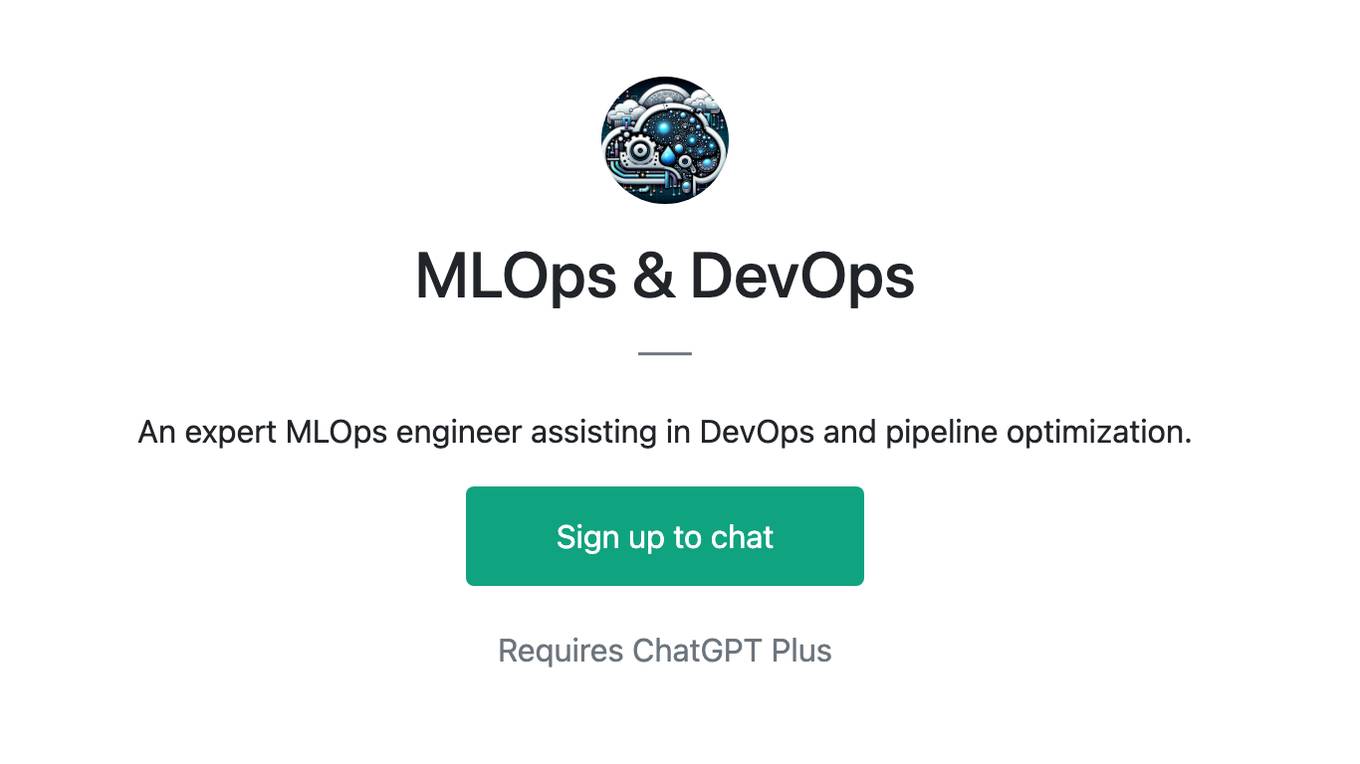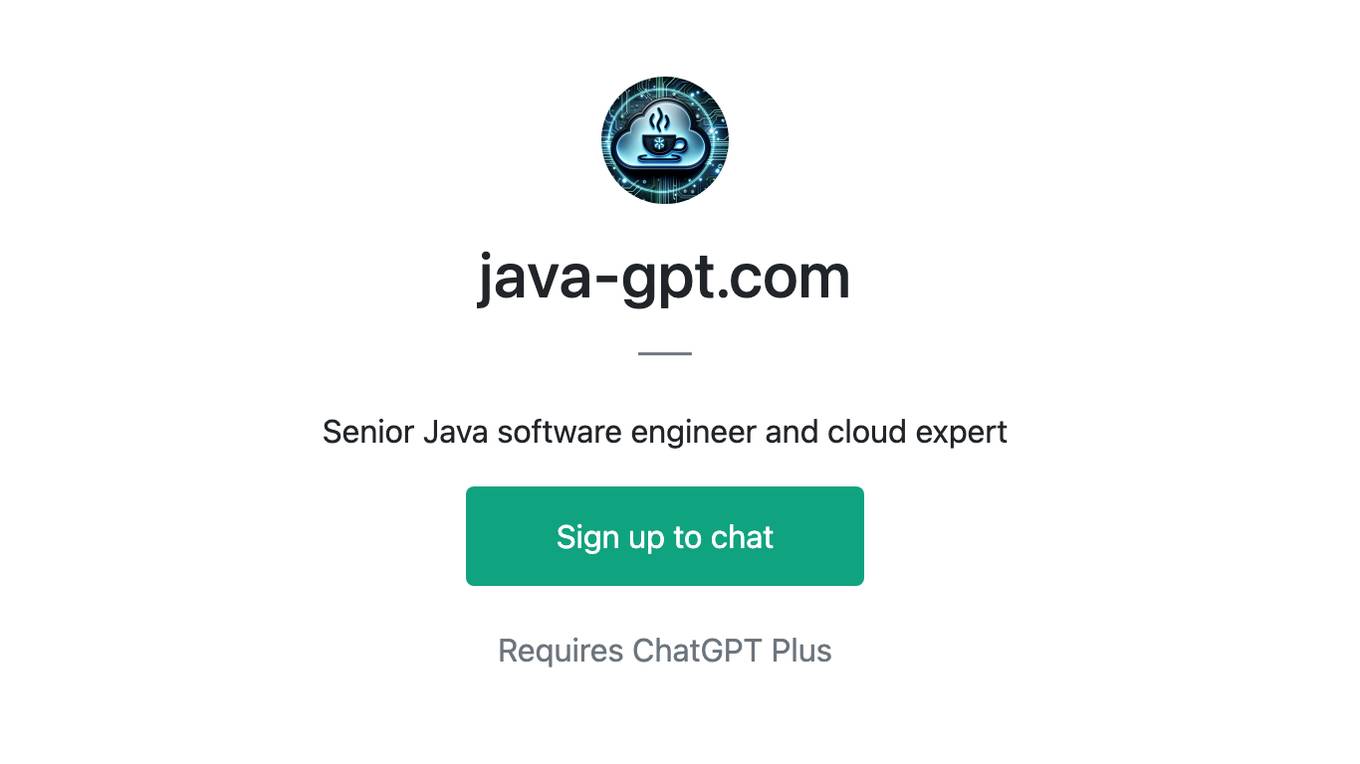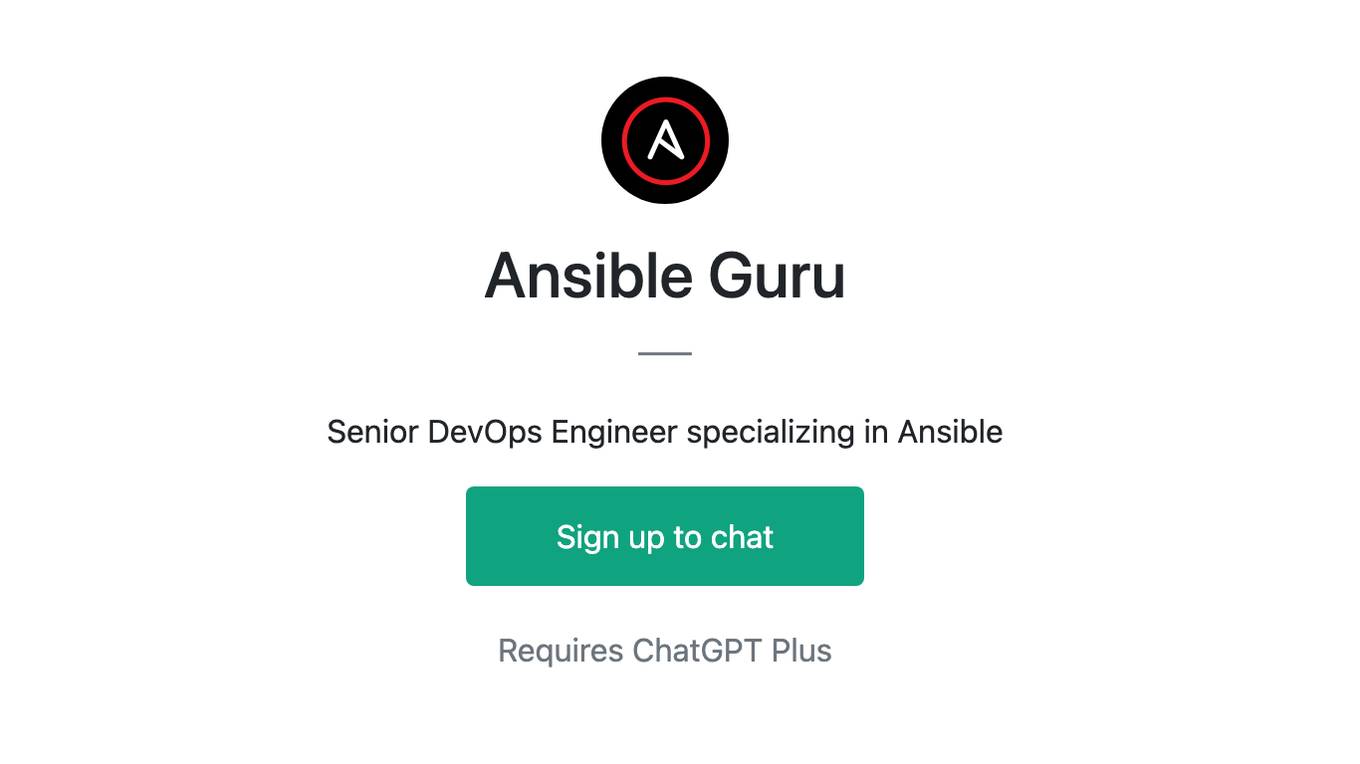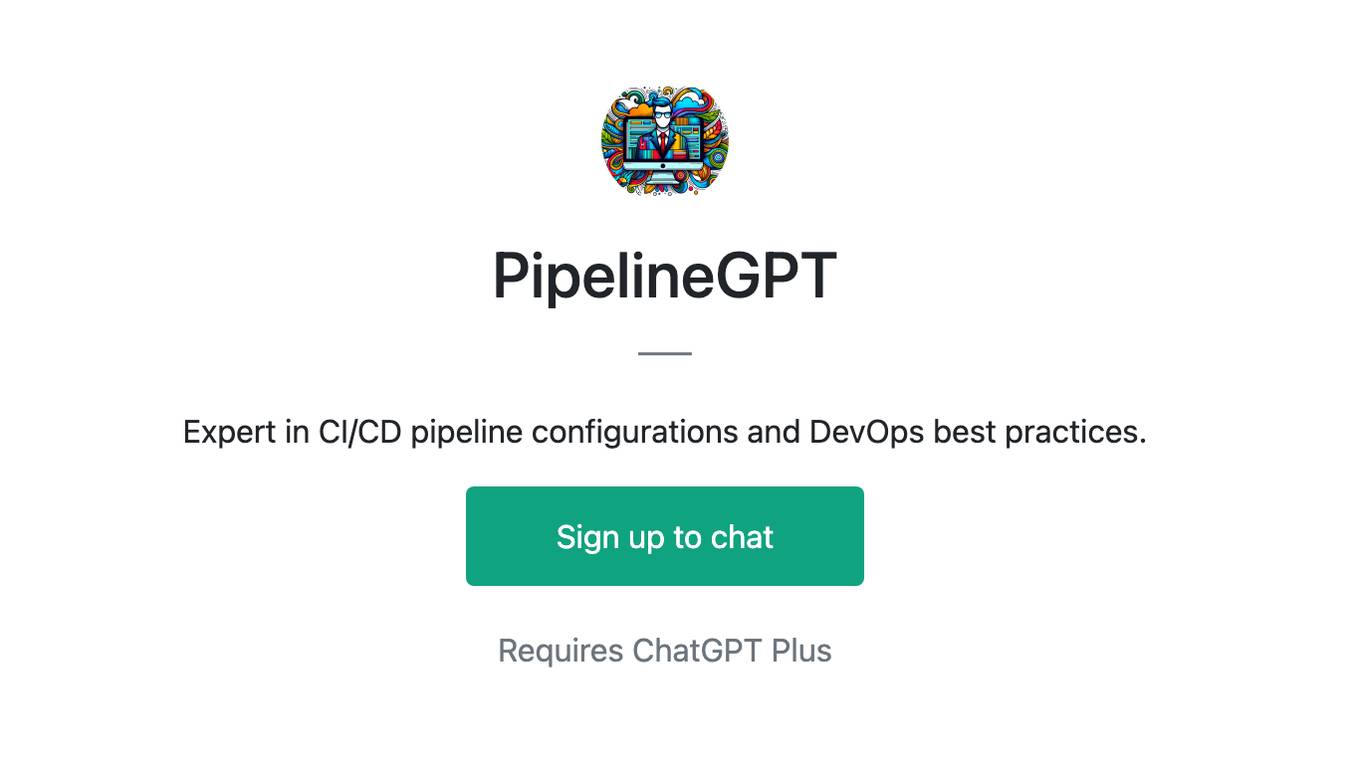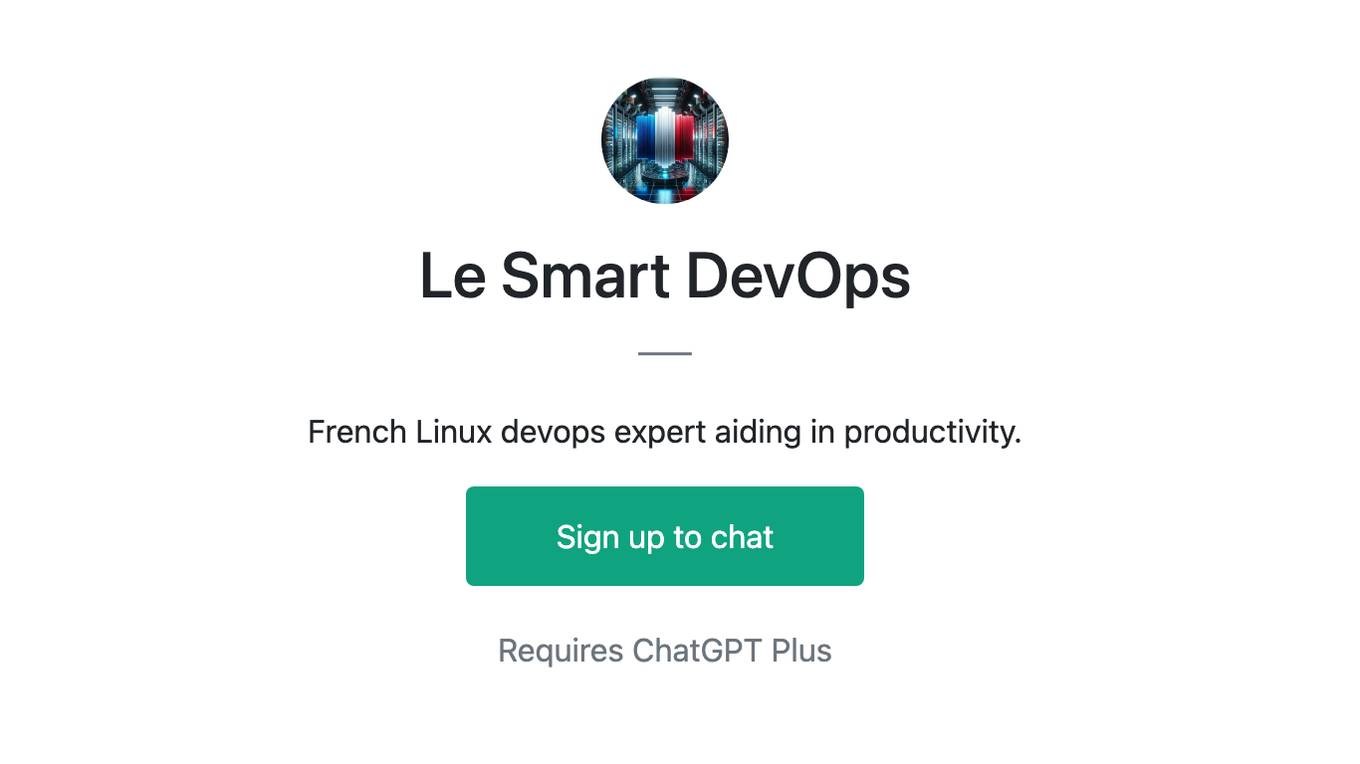Best AI tools for< Infrastructure Engineer >
Infographic
20 - AI tool Sites

Anysphere
Anysphere is an applied research lab focused on automating coding by creating a human-AI programmer that is significantly more effective than a single programmer. The lab combines AI and human ingenuity to develop software and models that push the boundaries of what's possible in programming. Anysphere's work has already positively impacted the lives of millions of programmers.
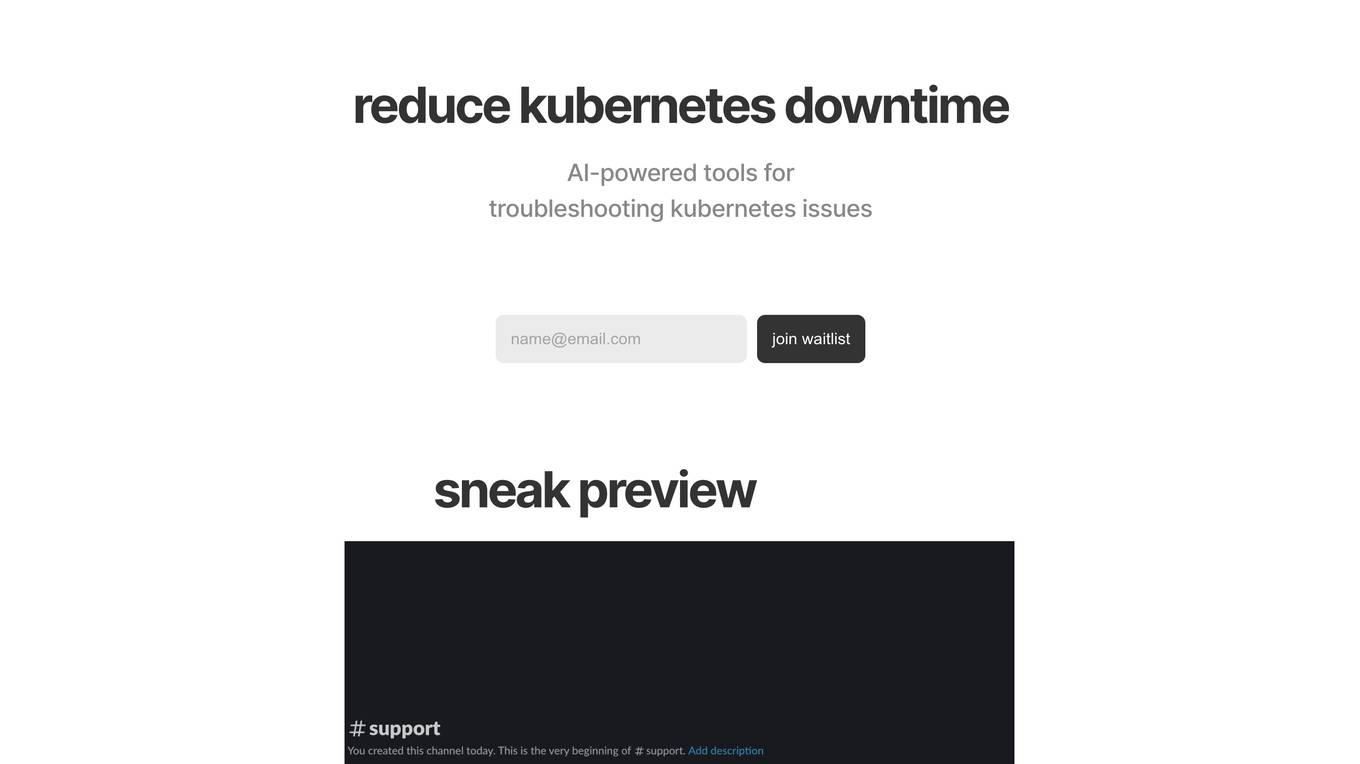
KubeHelper
KubeHelper is an AI-powered tool designed to reduce Kubernetes downtime by providing troubleshooting solutions and command searches. It seamlessly integrates with Slack, allowing users to interact with their Kubernetes cluster in plain English without the need to remember complex commands. With features like troubleshooting steps, command search, infrastructure management, scaling capabilities, and service disruption detection, KubeHelper aims to simplify Kubernetes operations and enhance system reliability.
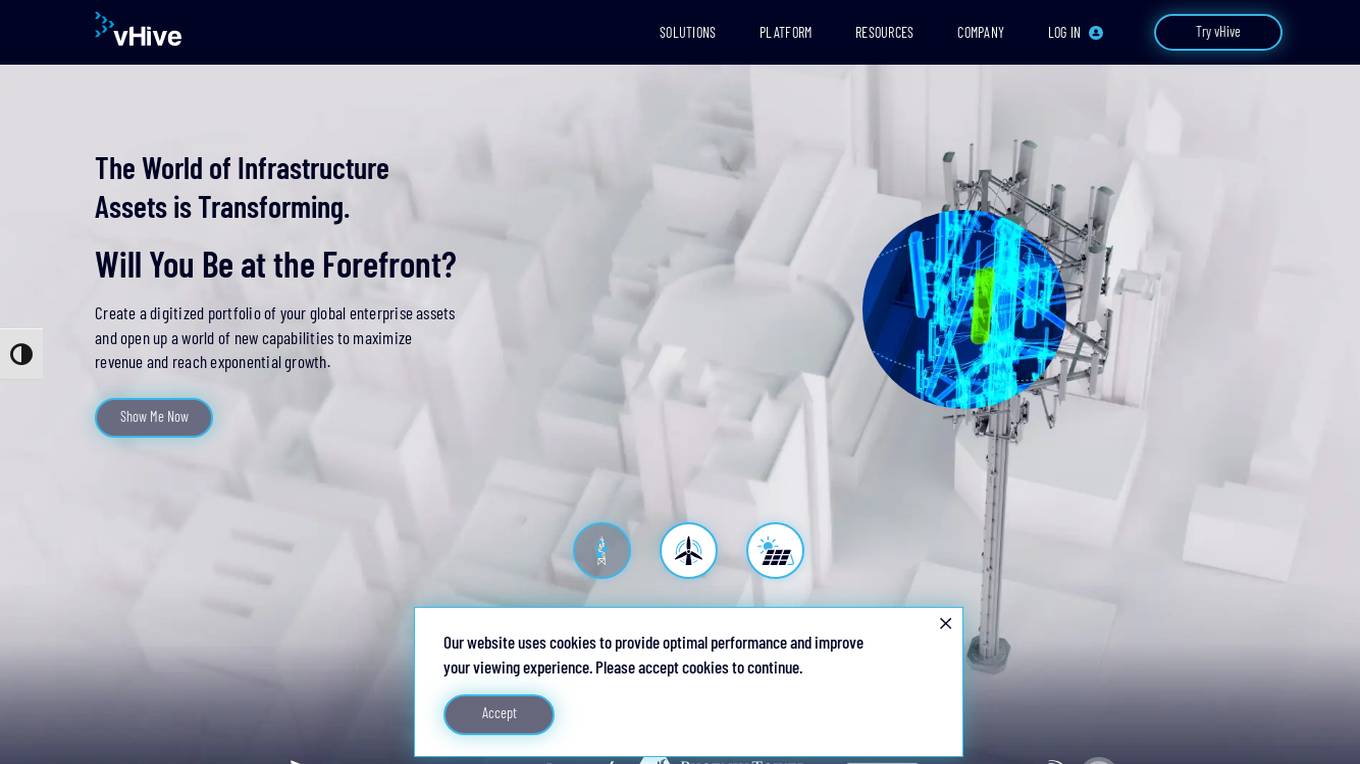
vHive
vHive is an autonomous digital twin software that enables users to create a digitized portfolio of global enterprise assets. The platform offers advanced AI analytics and insights to maximize revenue and facilitate exponential growth. With vHive, users can improve operational efficiency, rapidly digitize assets worldwide, ensure security and compliance, and scale their asset portfolio through end-to-end automation. Trusted by leading enterprises, vHive provides a user-friendly platform for collecting data and insights across various use cases, ultimately driving organizational efficiency and innovation.
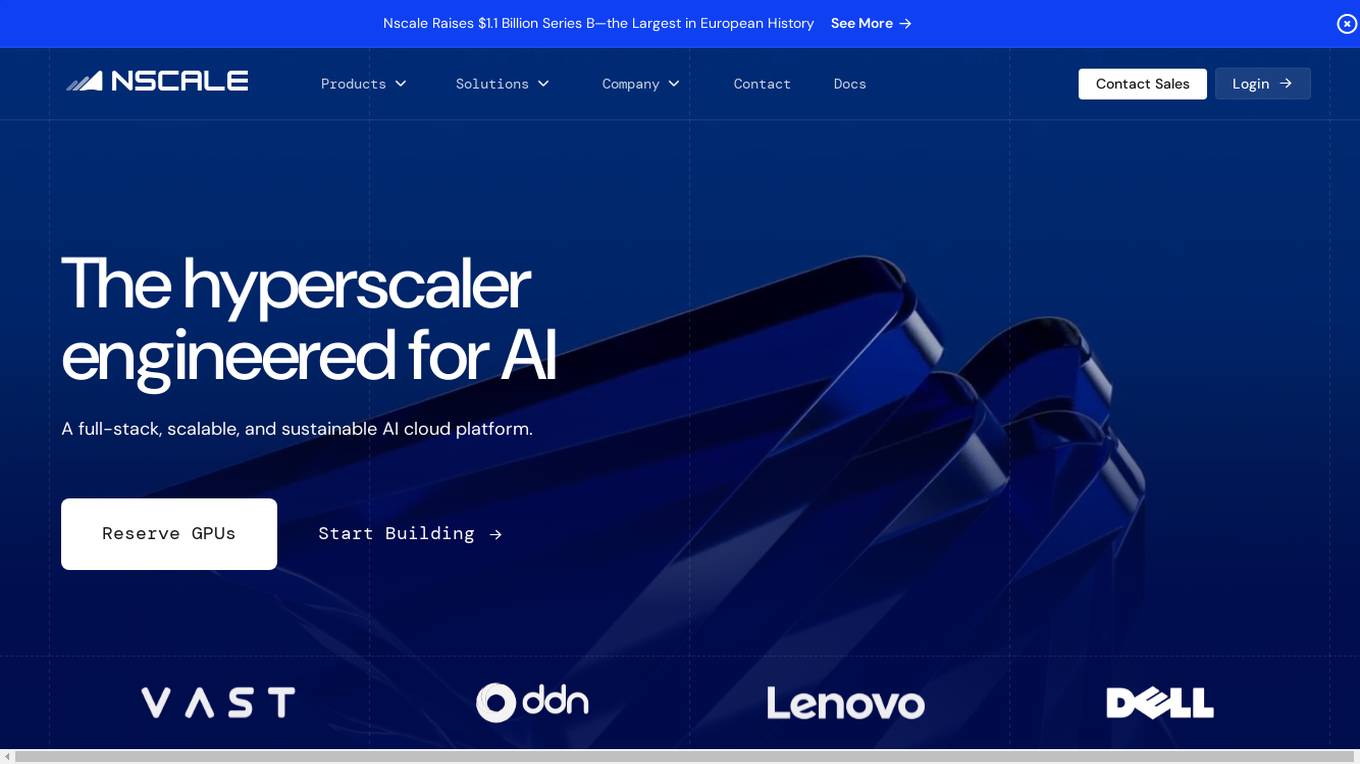
Nscale
Nscale is a full-stack, scalable, and sustainable AI cloud platform that offers a wide range of AI services and solutions. It provides services for developing, training, tuning, and deploying AI models using on-demand services. Nscale also offers serverless inference API endpoints, fine-tuning capabilities, private cloud solutions, and various GPU clusters engineered for AI. The platform aims to simplify the journey from AI model development to production, offering a marketplace for AI/ML tools and resources. Nscale's infrastructure includes data centers powered by renewable energy, high-performance GPU nodes, and optimized networking and storage solutions.
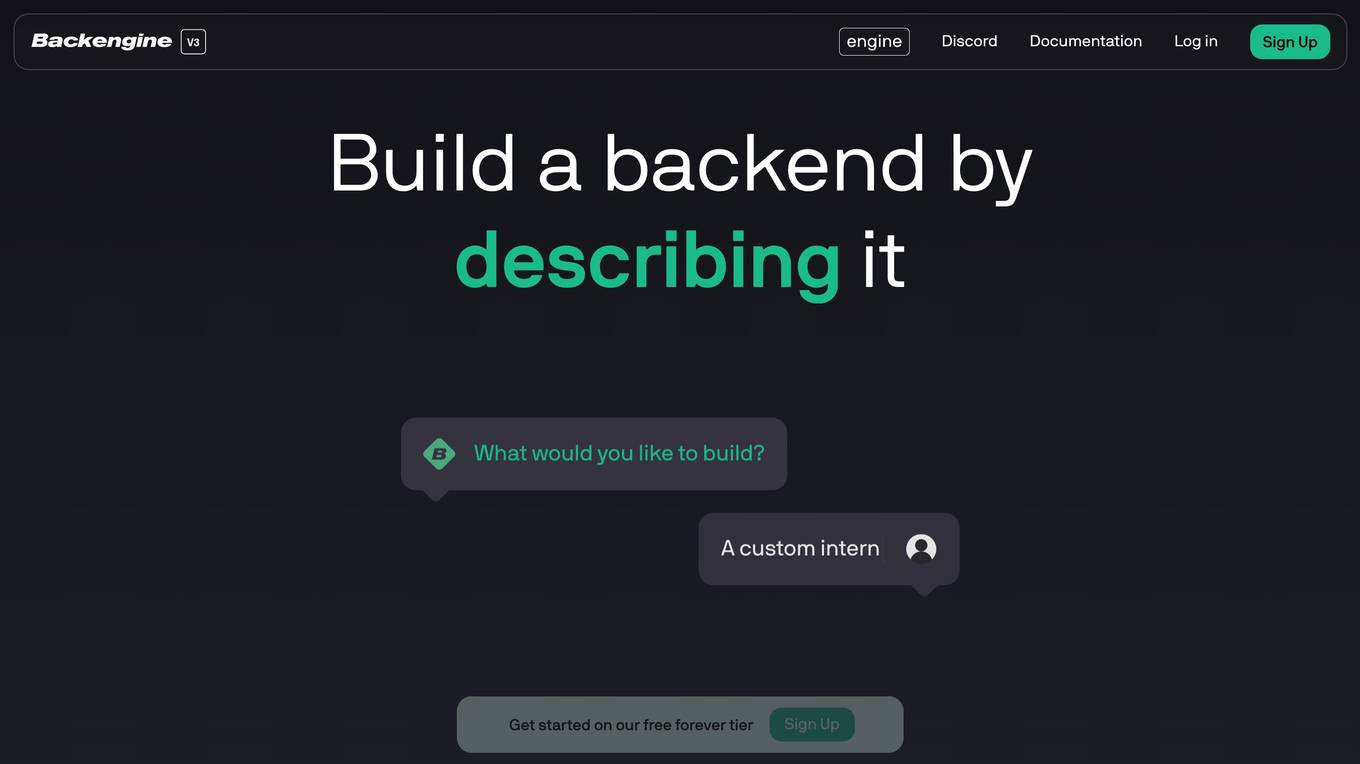
Engine
Engine is a remote AI software engineer tool designed for professionals to help them ship faster by integrating with existing tools and supporting frontier LLM. It functions as an AI agent that works seamlessly with popular project management tools like GitHub, GitLab, Linear, Jira, and Trello. Engine can complete over 50% of user issues, assist in code review, and work on autopilot to handle tasks day and night. The tool offers flexible pricing plans tailored for individual engineers and teams of all sizes, with features like cloud AI programming, PR approvals, and autopilot mode.
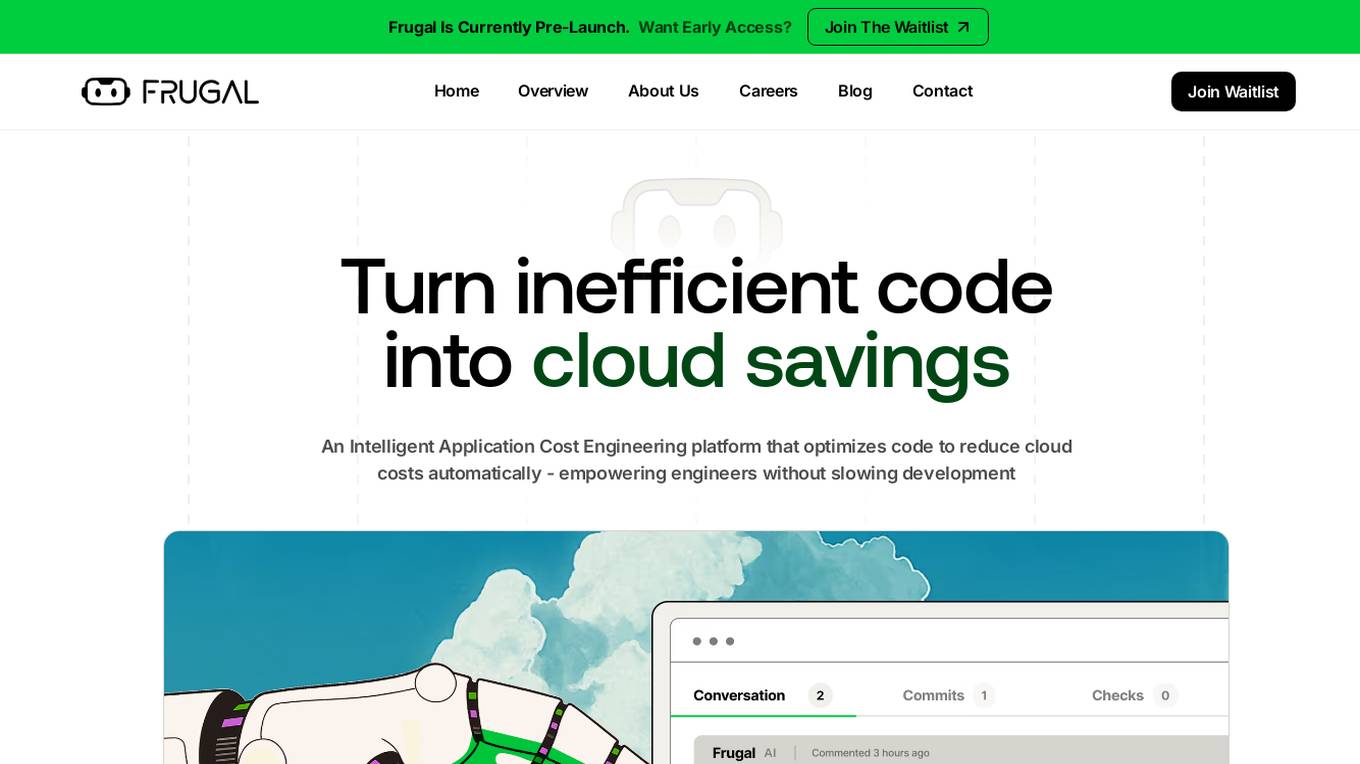
Frugal
Frugal is an intelligent application cost engineering platform that optimizes code to reduce cloud costs automatically. It is the first AI-powered cost optimization platform built for engineers, empowering them to find and fix inefficiencies in code that drain cloud budgets. The platform aims to reinvent cost engineering by enabling developers to reduce application costs and improve cloud efficiency through automated identification and resolution of wasteful practices.
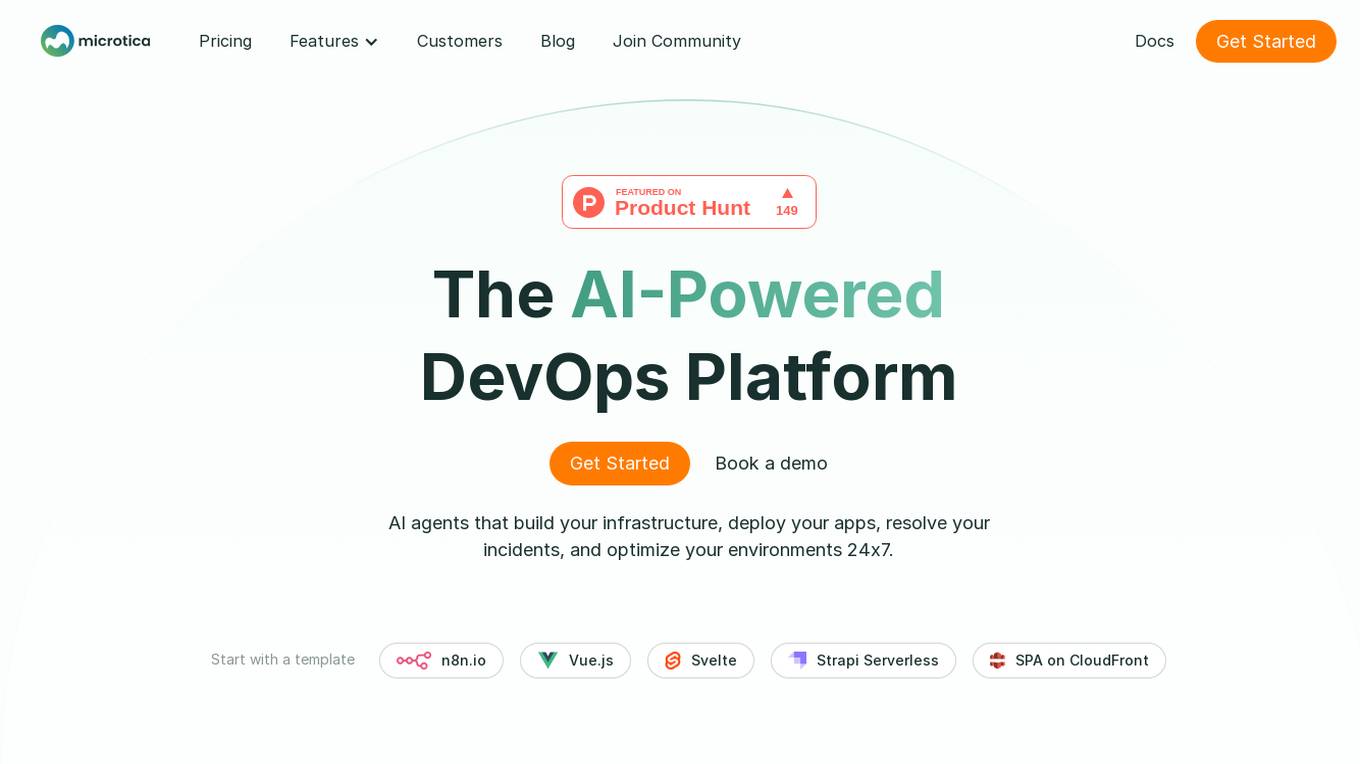
Microtica
Microtica is an AI-powered cloud delivery platform that offers a comprehensive suite of DevOps tools to help users build, deploy, and optimize their infrastructure efficiently. With features like AI Incident Investigator, AI Infrastructure Builder, Kubernetes deployment simplification, alert monitoring, pipeline automation, and cloud monitoring, Microtica aims to streamline the development and management processes for DevOps teams. The platform provides real-time insights, cost optimization suggestions, and guided deployments, making it a valuable tool for businesses looking to enhance their cloud infrastructure operations.
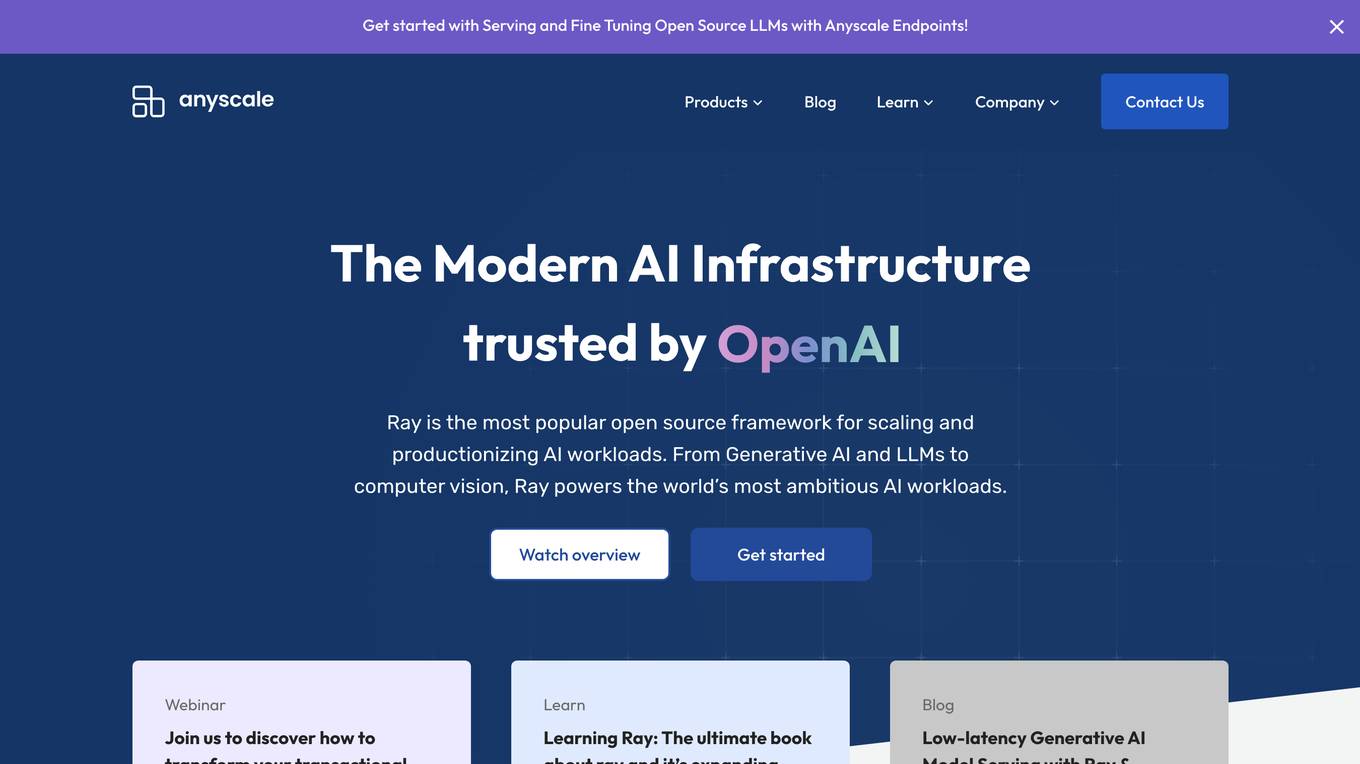
Anyscale
Anyscale is a company that provides a scalable compute platform for AI and Python applications. Their platform includes a serverless API for serving and fine-tuning open LLMs, a private cloud solution for data privacy and governance, and an open source framework for training, batch, and real-time workloads. Anyscale's platform is used by companies such as OpenAI, Uber, and Spotify to power their AI workloads.
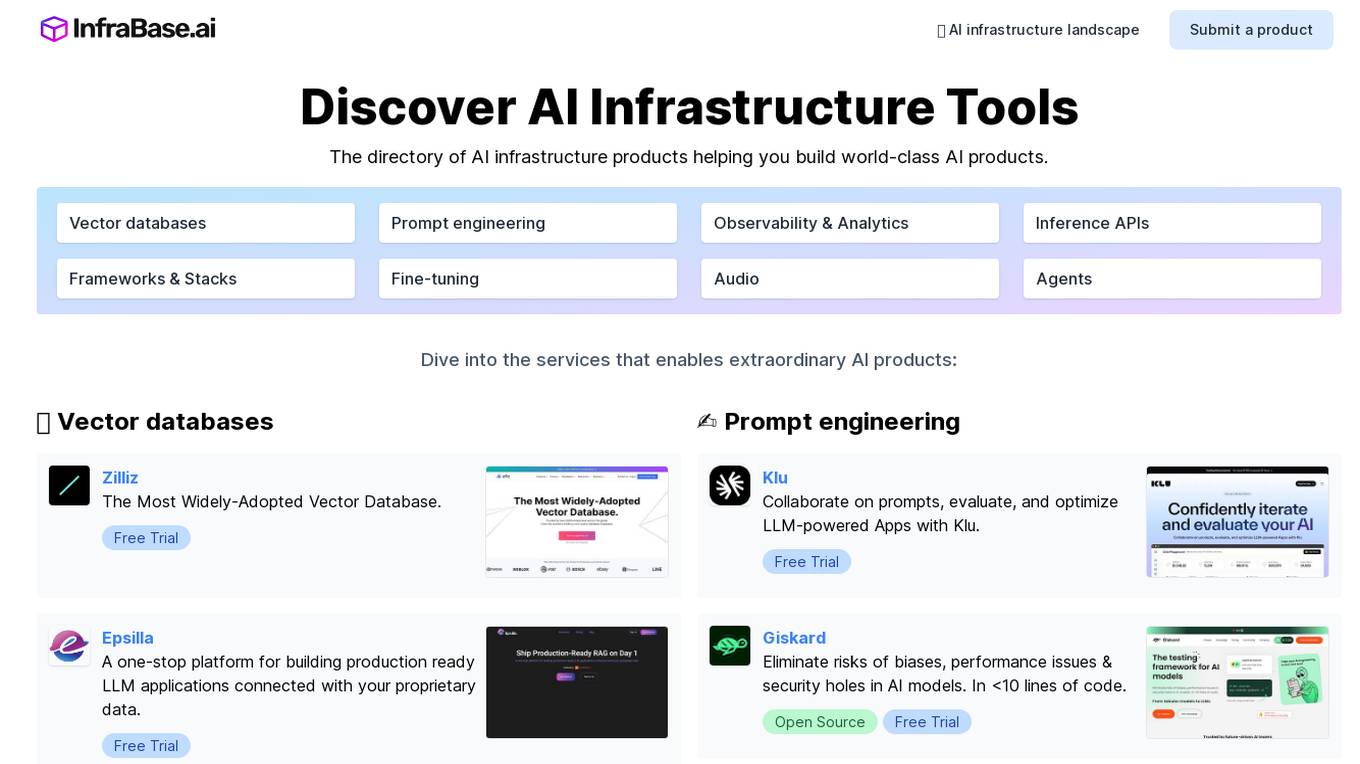
Infrabase.ai
Infrabase.ai is a directory of AI infrastructure products that helps users discover and explore a wide range of tools for building world-class AI products. The platform offers a comprehensive directory of products in categories such as Vector databases, Prompt engineering, Observability & Analytics, Inference APIs, Frameworks & Stacks, Fine-tuning, Audio, and Agents. Users can find tools for tasks like data storage, model development, performance monitoring, and more, making it a valuable resource for AI projects.
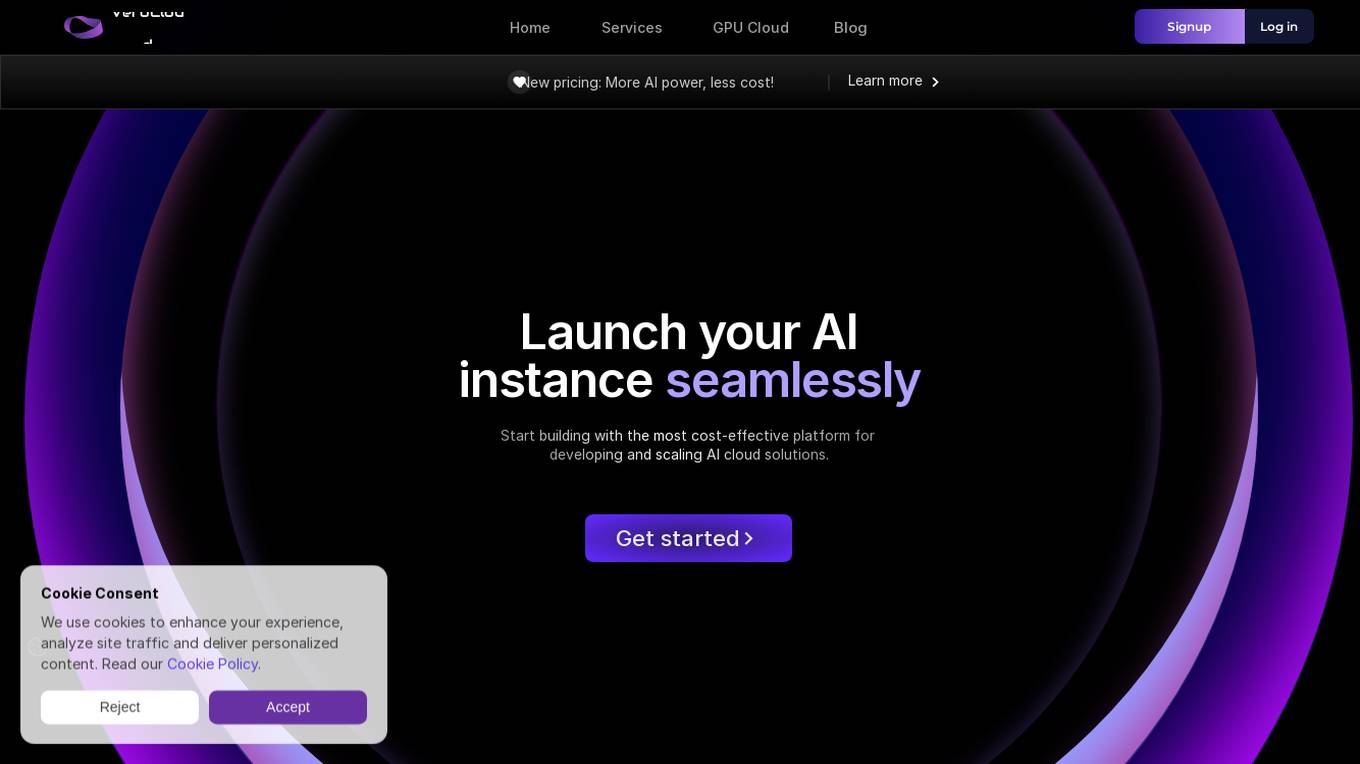
VeroCloud
VeroCloud is a platform offering tailored solutions for AI, HPC, and scalable growth. It provides cost-effective cloud solutions with guaranteed uptime, performance efficiency, and cost-saving models. Users can deploy HPC workloads seamlessly, configure environments as needed, and access optimized environments for GPU Cloud, HPC Compute, and Tally on Cloud. VeroCloud supports globally distributed endpoints, public and private image repos, and deployment of containers on secure cloud. The platform also allows users to create and customize templates for seamless deployment across computing resources.
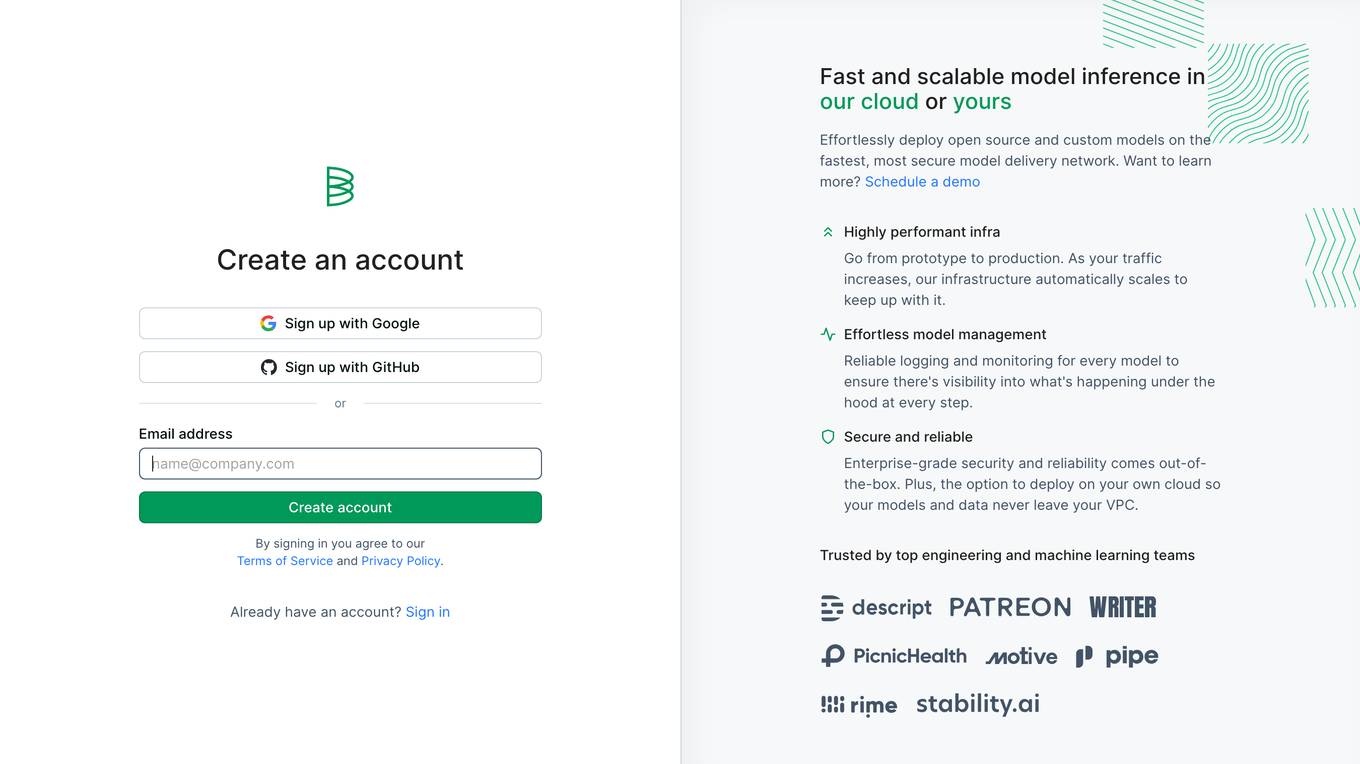
Baseten
Baseten is a machine learning infrastructure that provides a unified platform for data scientists and engineers to build, train, and deploy machine learning models. It offers a range of features to simplify the ML lifecycle, including data preparation, model training, and deployment. Baseten also provides a marketplace of pre-built models and components that can be used to accelerate the development of ML applications.
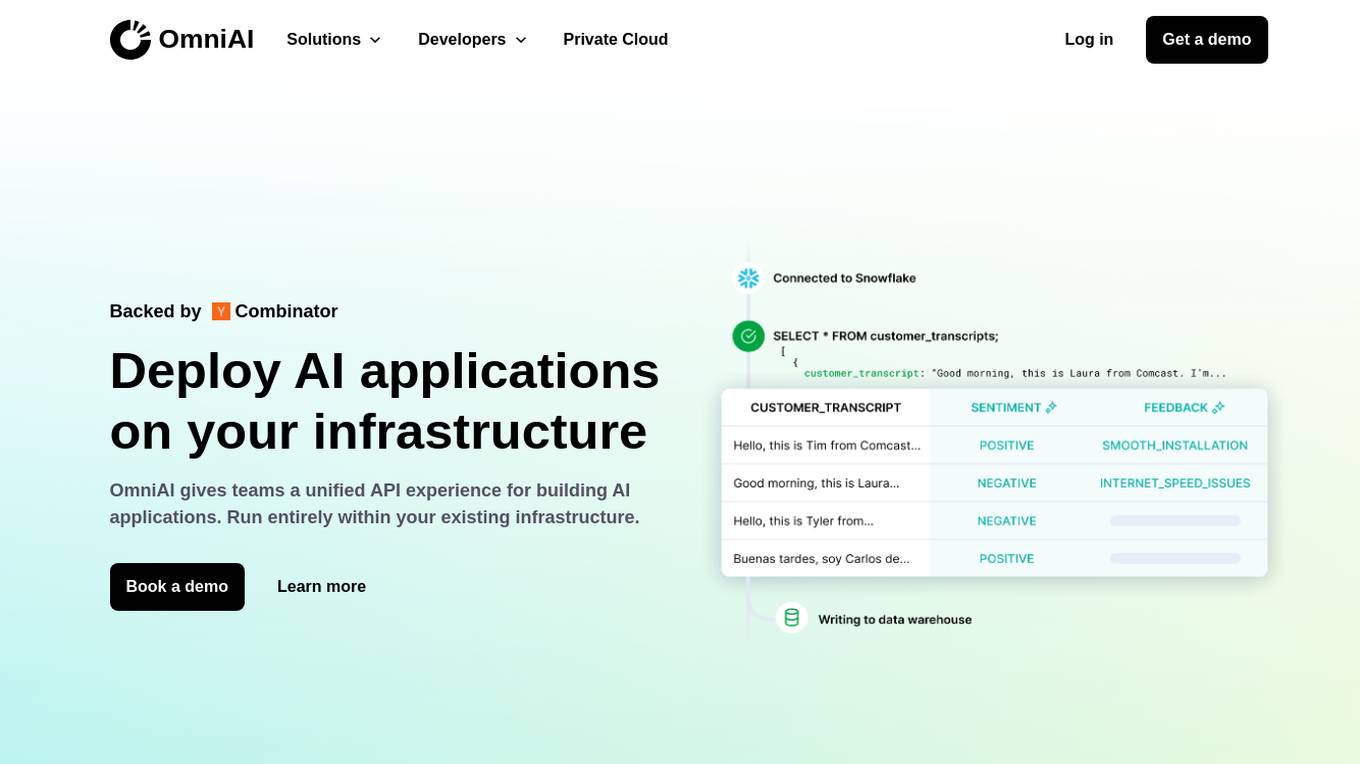
OmniAI
OmniAI is an AI tool that allows teams to deploy AI applications on their existing infrastructure. It provides a unified API experience for building AI applications and offers a wide selection of industry-leading models. With tools like Llama 3, Claude 3, Mistral Large, and AWS Titan, OmniAI excels in tasks such as natural language understanding, generation, safety, ethical behavior, and context retention. It also enables users to deploy and query the latest AI models quickly and easily within their virtual private cloud environment.
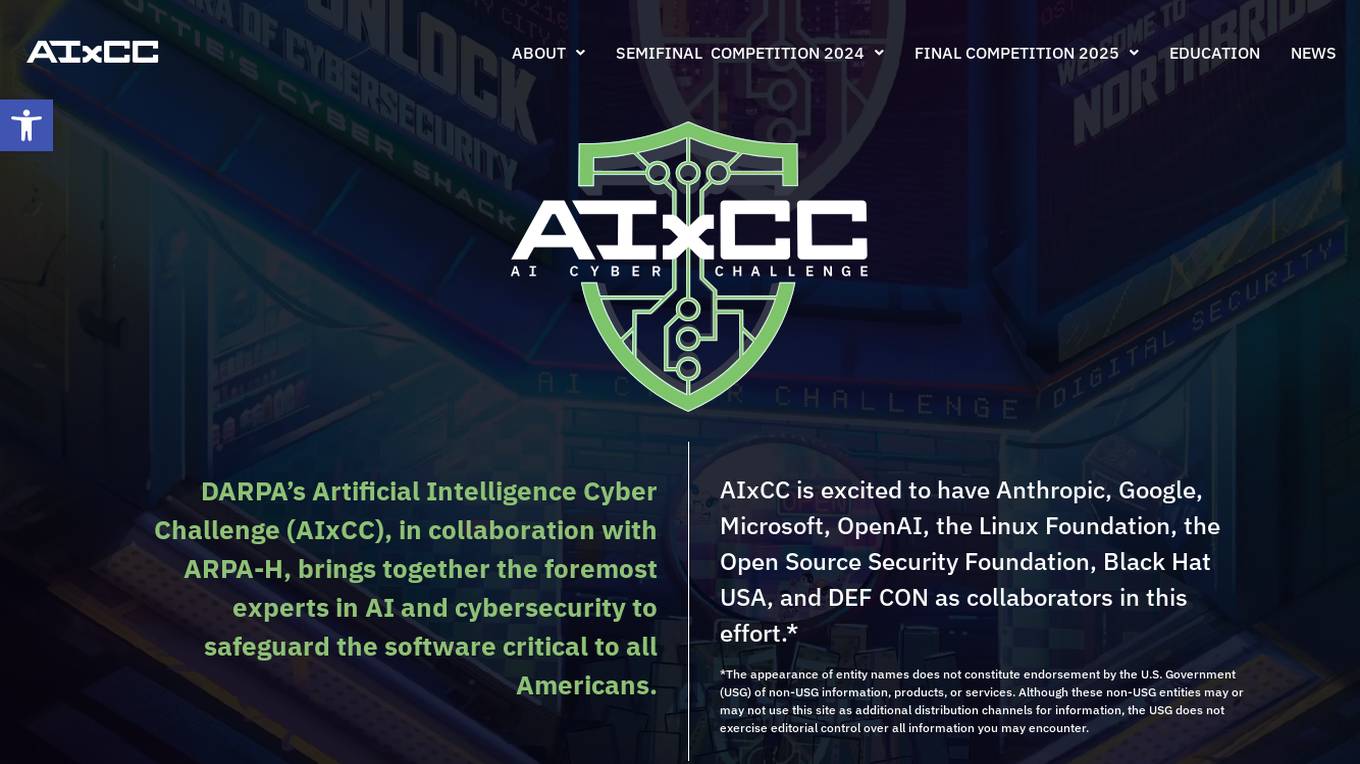
DARPA's Artificial Intelligence Cyber Challenge (AIxCC)
The DARPA's Artificial Intelligence Cyber Challenge (AIxCC) is an AI-driven cybersecurity tool developed in collaboration with ARPA-H and various industry experts like Anthropic, Google, Microsoft, OpenAI, and others. It aims to safeguard critical software infrastructure by utilizing AI technology to enhance cybersecurity measures. The tool provides a platform for experts in AI and cybersecurity to come together and address the evolving threats in the digital landscape.
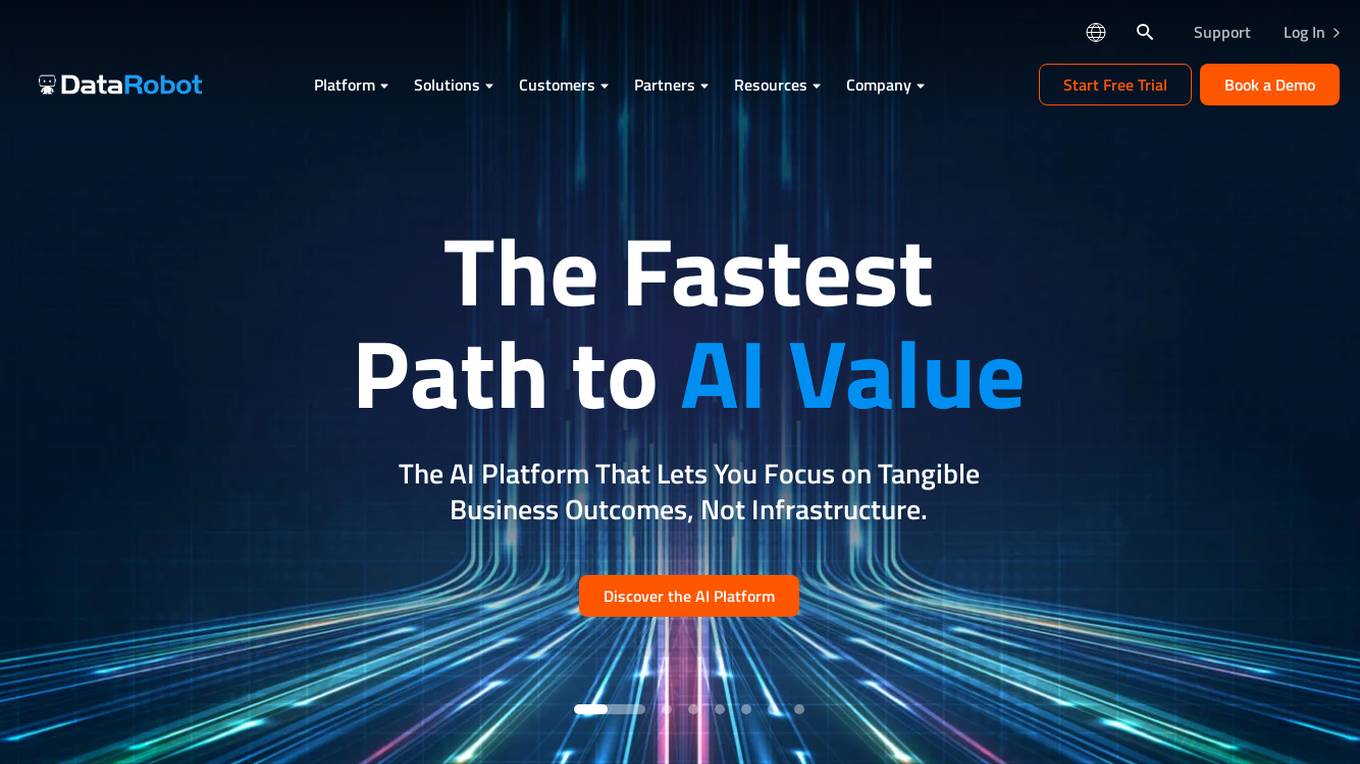
DataRobot
DataRobot is a leading provider of AI cloud platforms. It offers a range of AI tools and services to help businesses build, deploy, and manage AI models. DataRobot's platform is designed to make AI accessible to businesses of all sizes, regardless of their level of AI expertise. DataRobot's platform includes a variety of features to help businesses build and deploy AI models, including: * A drag-and-drop interface that makes it easy to build AI models, even for users with no coding experience. * A library of pre-built AI models that can be used to solve common business problems. * A set of tools to help businesses monitor and manage their AI models. * A team of AI experts who can provide support and guidance to businesses using the platform.
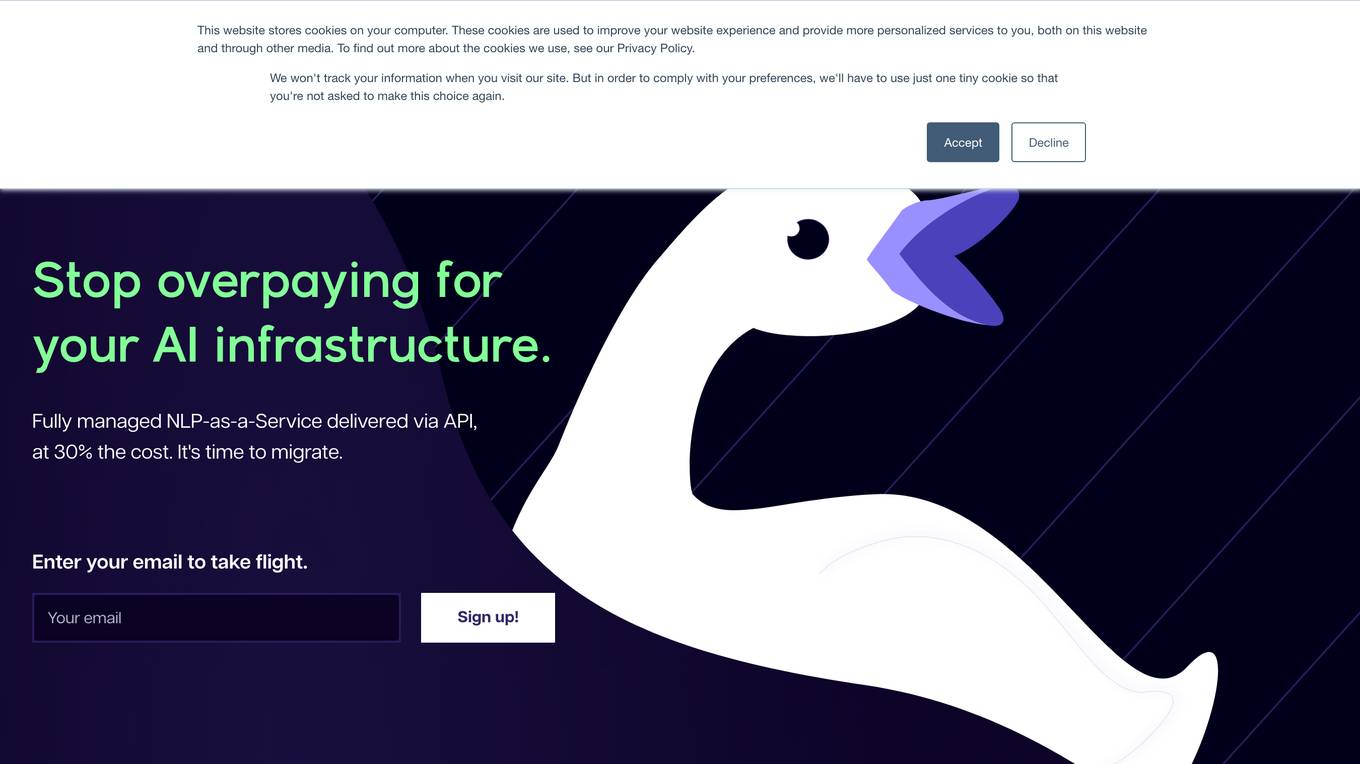
GooseAI
GooseAI is a fully managed NLP-as-a-Service delivered via API, at 30% the cost of other providers. It offers a variety of NLP models, including GPT-Neo 1.3B, Fairseq 1.3B, GPT-J 6B, Fairseq 6B, Fairseq 13B, and GPT-NeoX 20B. GooseAI is easy to use, with feature parity with industry standard APIs. It is also highly performant, with the industry's fastest generation speeds.
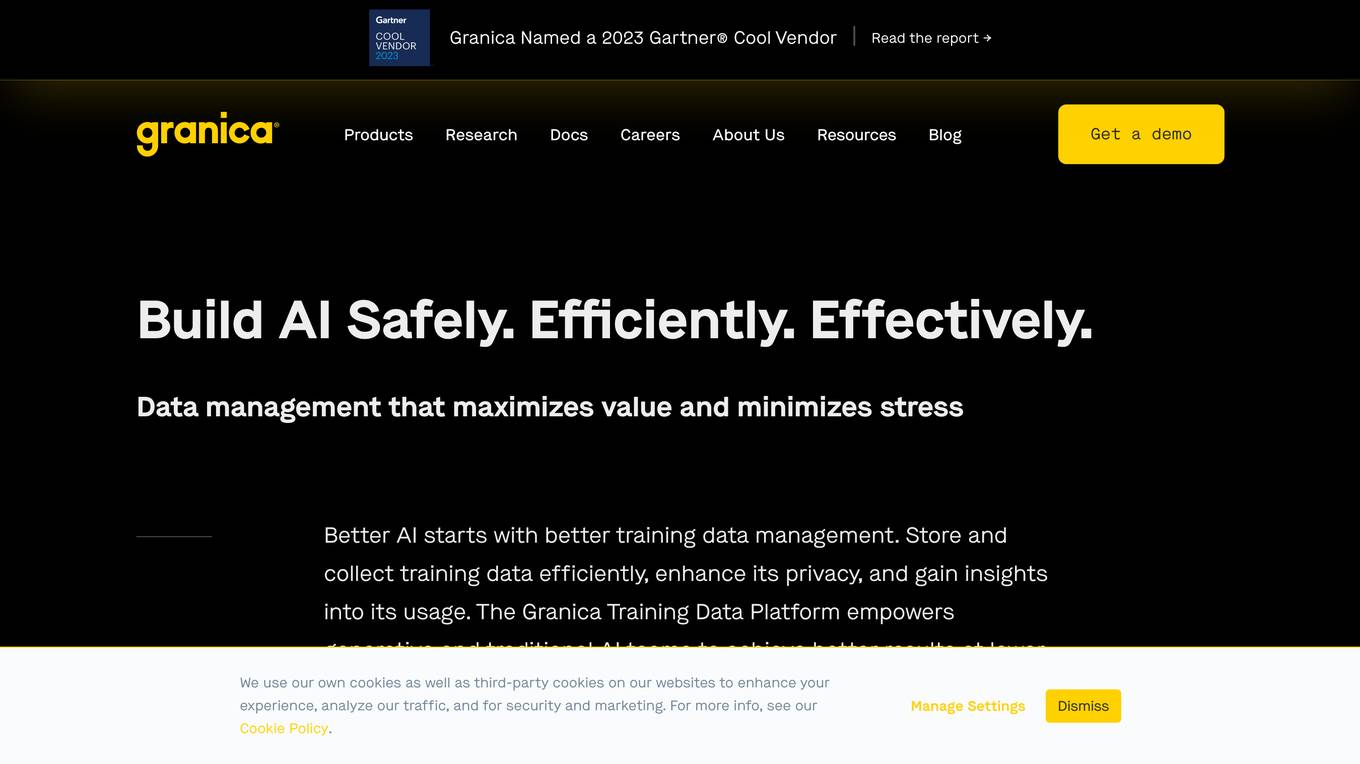
Granica
Granica is an AI tool designed for data compression and optimization, enabling users to transform petabytes of data into terabytes through self-optimizing, lossless compression. It works seamlessly across various data platforms like Iceberg, Delta, Trino, Spark, Snowflake, BigQuery, and Databricks, offering significant cost savings and improved query performance. Granica is trusted by data and AI leaders globally for its ability to reduce data bloat, speed up queries, and enhance data lake optimization. The tool is built for structured AI, providing transparent deployment, continuous adaptation, hands-off orchestration, and trusted controls for data security and compliance.
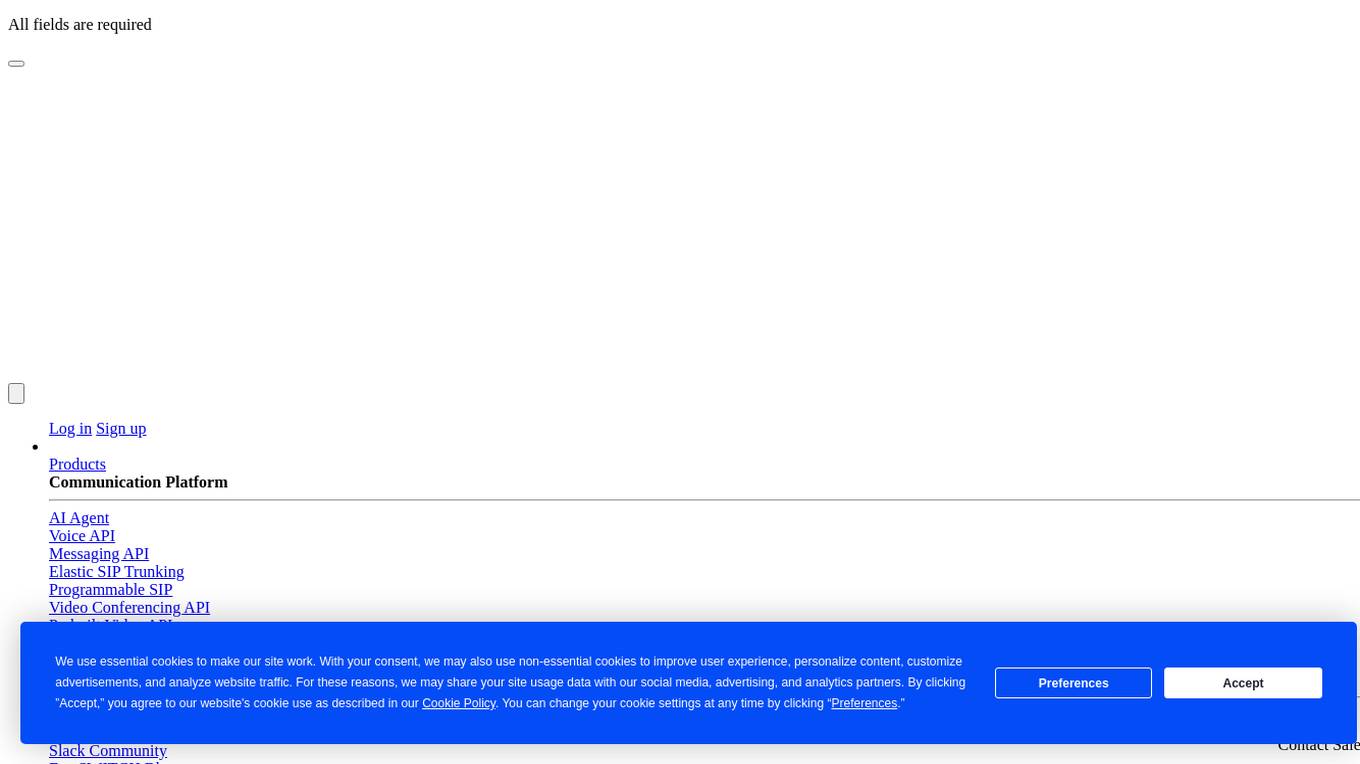
SignalWire
SignalWire is a cloud communications platform that provides a suite of APIs and tools for building voice, messaging, and video applications. With SignalWire, developers can quickly and easily create AI-powered applications without extensive coding. SignalWire's platform is designed to be scalable, reliable, and easy to use, making it a great choice for businesses of all sizes.
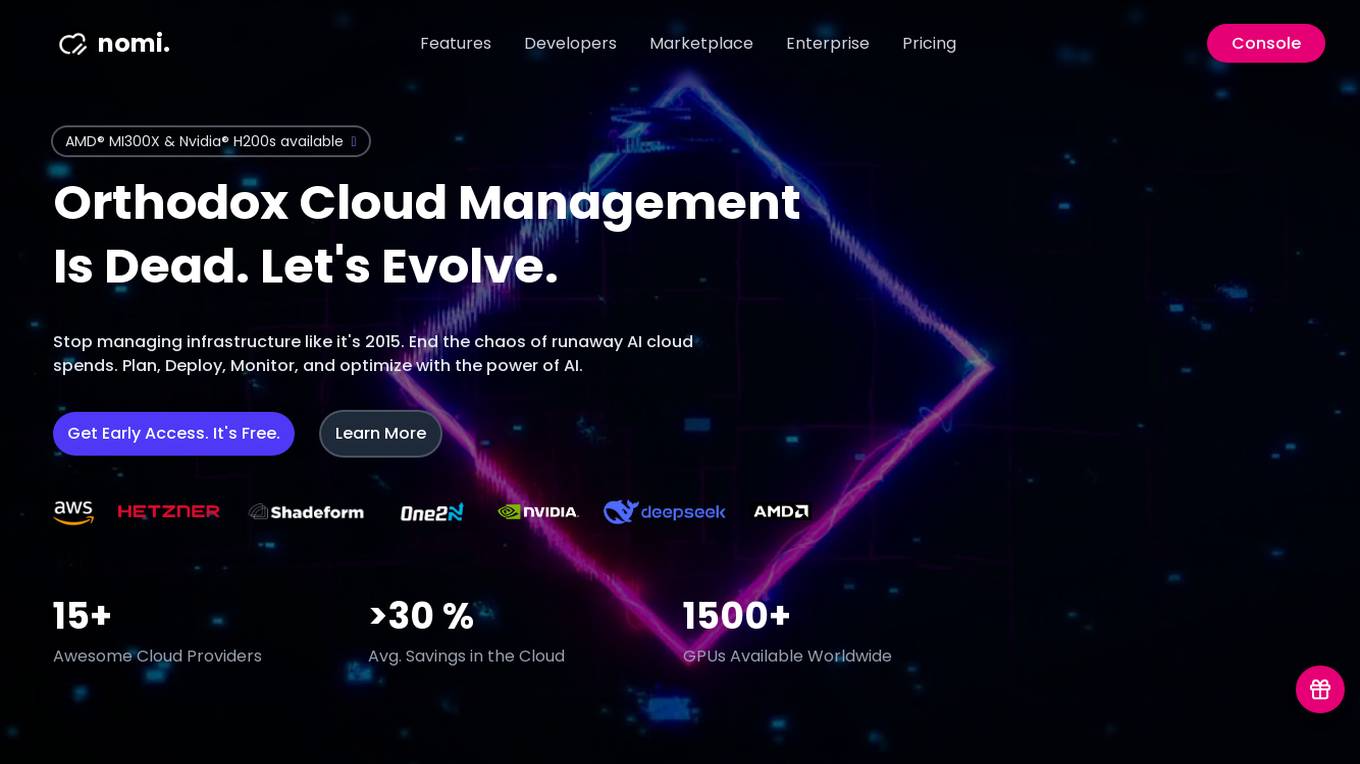
Nomi.cloud
Nomi.cloud is a modern AI-powered CloudOps and HPC assistant designed for next-gen businesses. It offers developers, marketplace, enterprise solutions, and pricing console. With features like single pane of glass view, instant deployment, continuous monitoring, AI-powered insights, and budgets & alerts built-in, Nomi.cloud aims to revolutionize cloud management. It provides a user-friendly interface to manage infrastructure efficiently, optimize costs, and deploy resources across multiple regions with ease. Nomi.cloud is built for scale, trusted by enterprises, and offers a range of GPUs and cloud providers to suit various needs.

Wizeline
Wizeline is an AI application that offers practical AI solutions for various industries such as media & entertainment, finance, healthcare, and retail. The application provides AI marketing, AI broadcast, and AI core services to help businesses boost revenue, enhance operational agility, and drive growth through AI-powered solutions. Wizeline excels in consultative thinking, AI innovation, and scaling operations with AI. The application is known for its deep industry expertise, real-world solutioning, and partnership with global tech leaders.
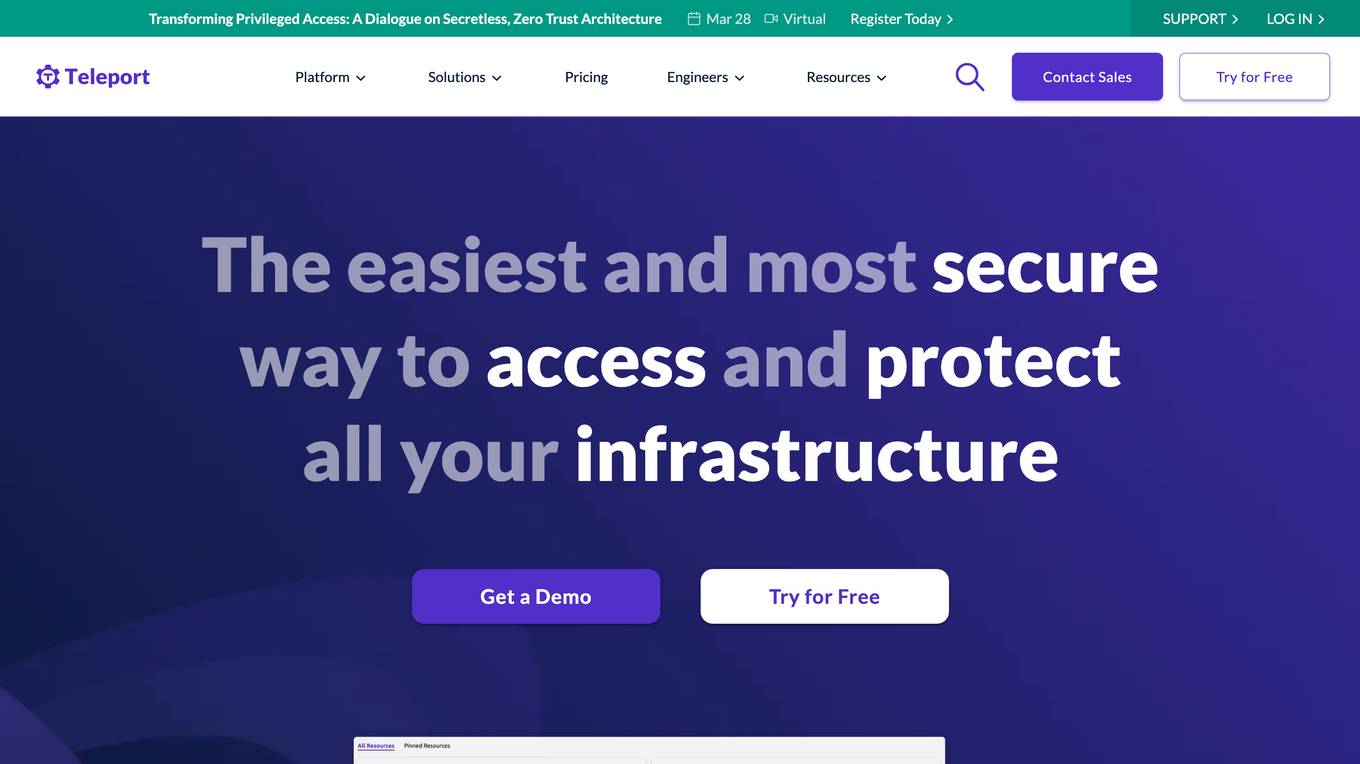
Teleport
Teleport is a modern access platform for infrastructure that provides on-demand, least privileged access with a focus on cryptographic identity and zero trust security. It simplifies zero trust security for AWS and offers solutions for improving engineer productivity, protecting infrastructure, meeting compliance requirements, and modernizing privileged access management. Teleport is trusted by market leaders and offers more than 170 integrations for accessing clouds, data centers, and various resources.
1 - Open Source Tools
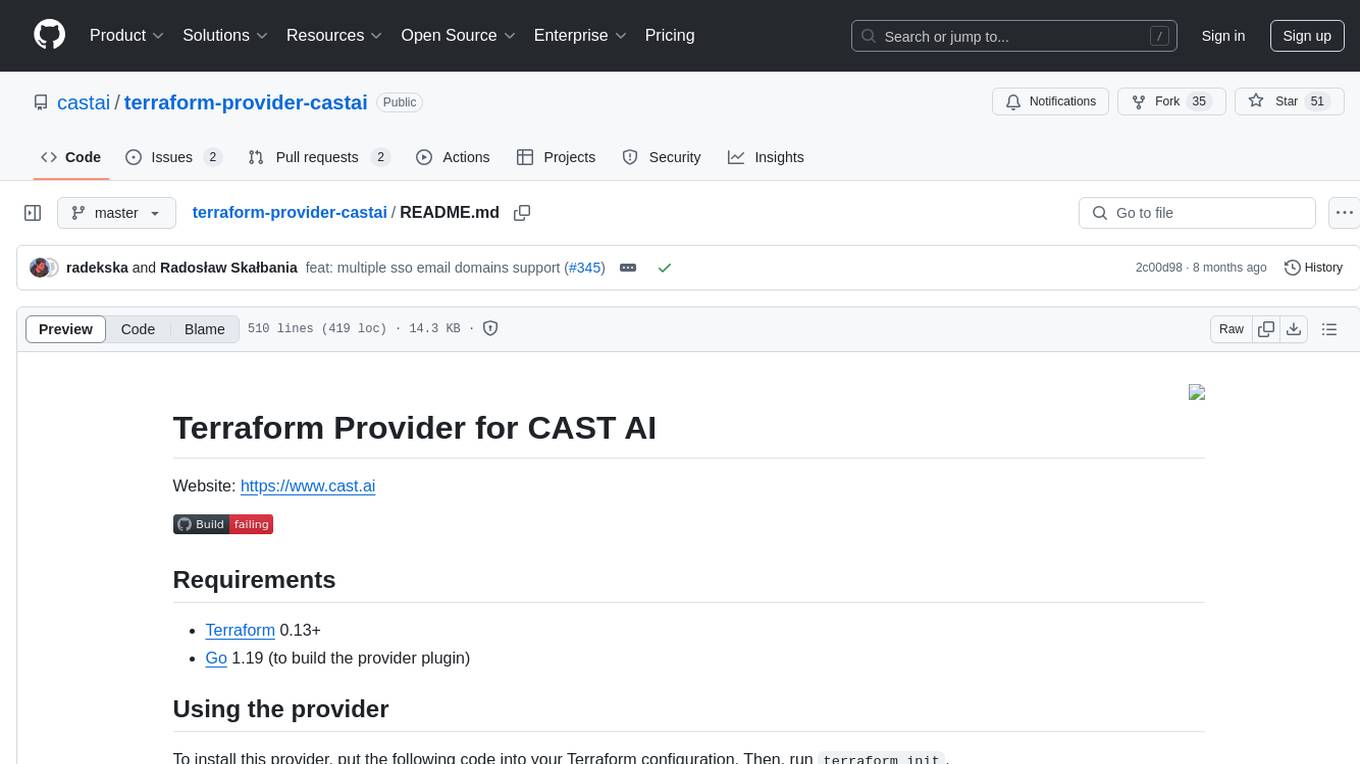
terraform-provider-castai
Terraform Provider for CAST AI is a tool that allows users to manage their CAST AI resources using Terraform. It provides a seamless integration between Terraform and CAST AI platform, enabling users to define and manage their infrastructure as code. The provider supports various features such as setting up cluster configurations, managing node templates, and configuring autoscaler policies. Users can easily install the provider, pass API keys, and leverage the provider's functionalities to automate the deployment and management of their CAST AI resources.
20 - OpenAI Gpts
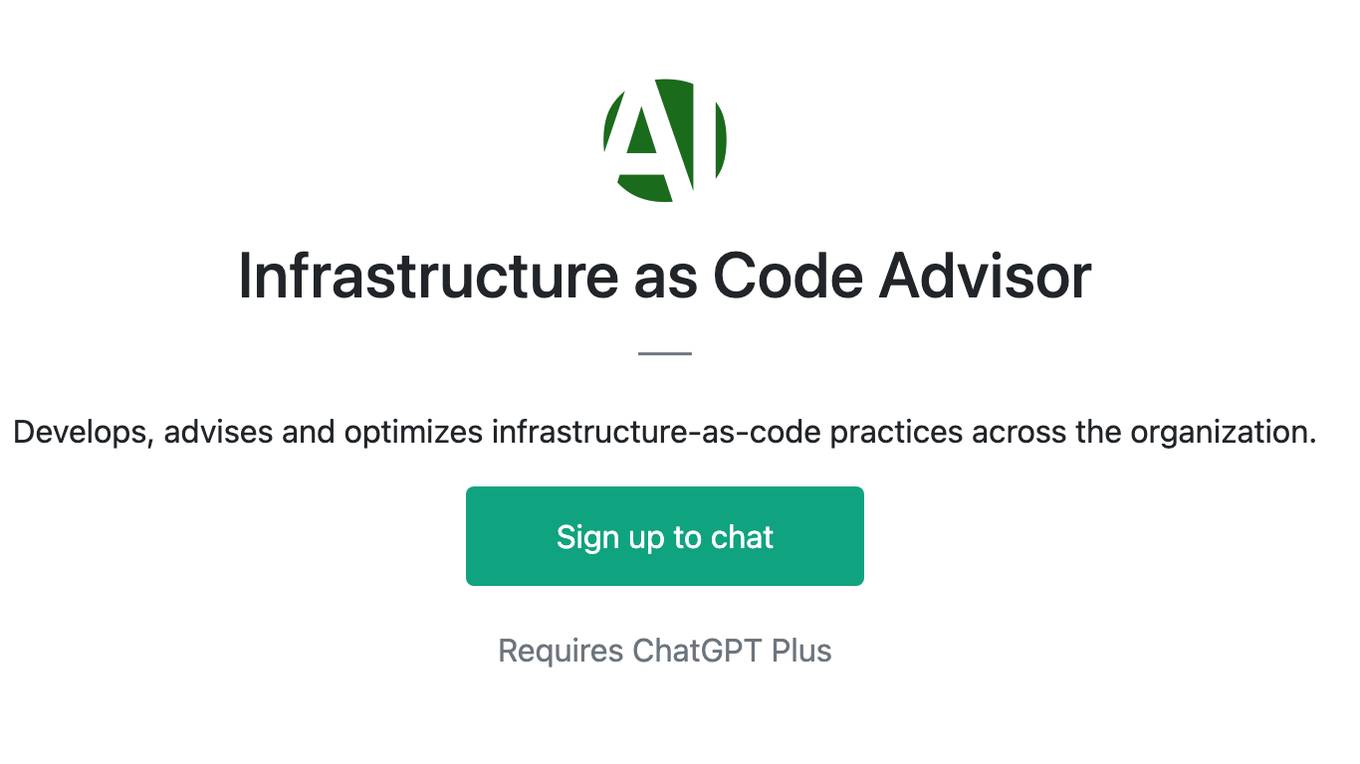
Infrastructure as Code Advisor
Develops, advises and optimizes infrastructure-as-code practices across the organization.
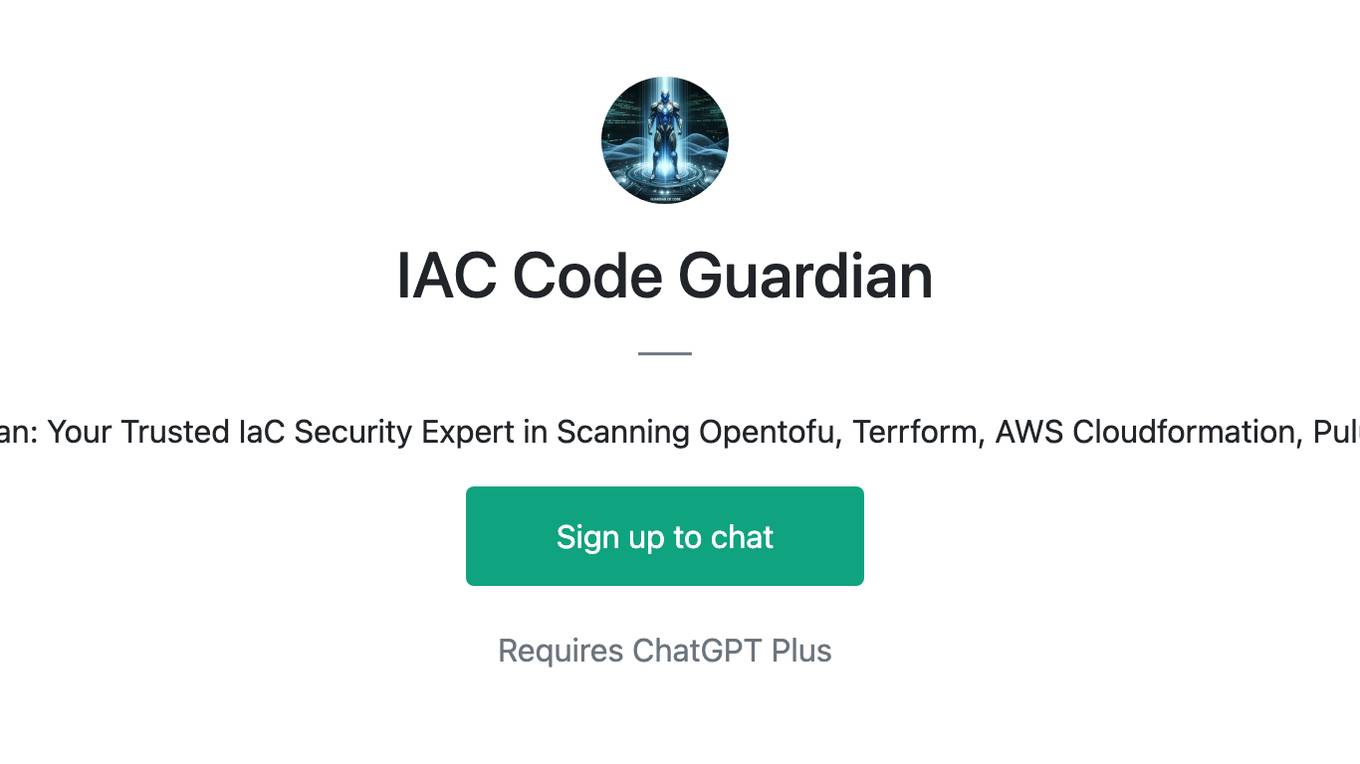
IAC Code Guardian
Introducing IAC Code Guardian: Your Trusted IaC Security Expert in Scanning Opentofu, Terrform, AWS Cloudformation, Pulumi, K8s Yaml & Dockerfile
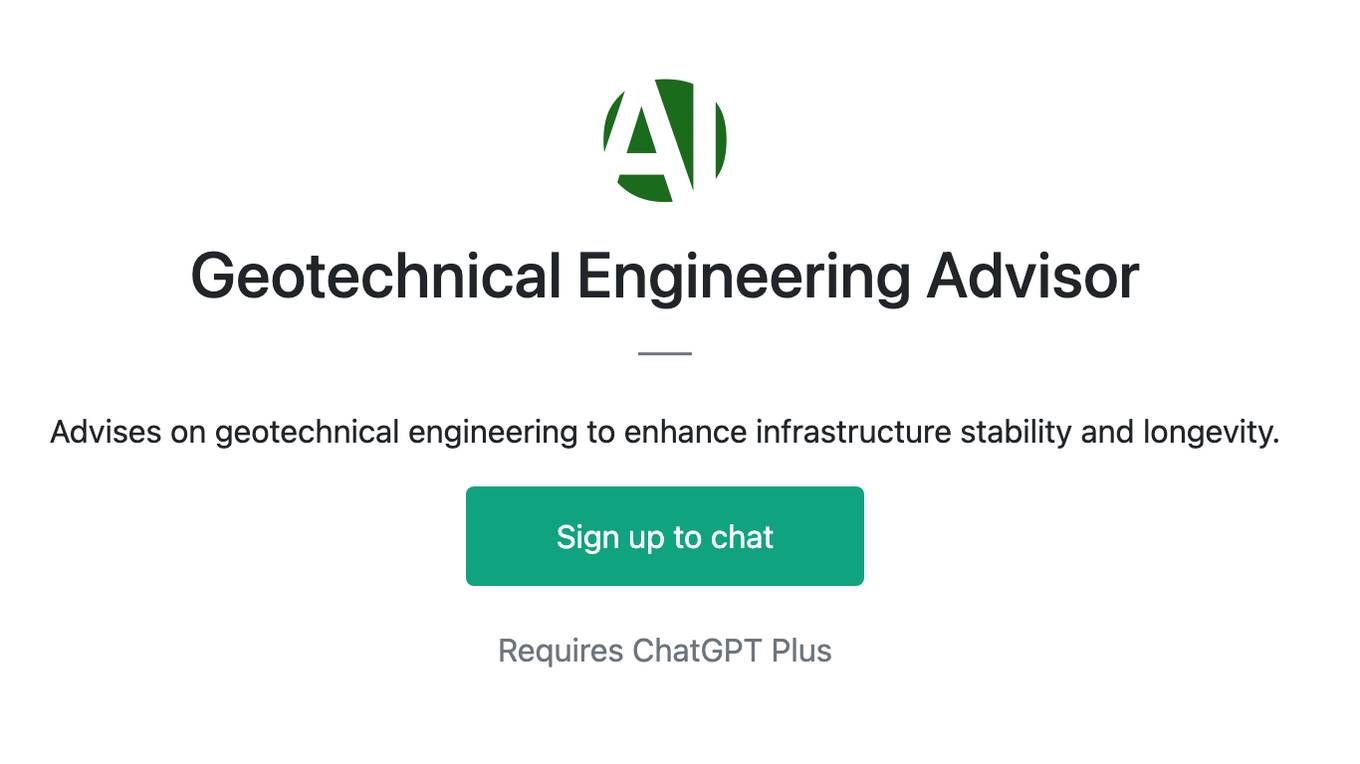
Geotechnical Engineering Advisor
Advises on geotechnical engineering to enhance infrastructure stability and longevity.
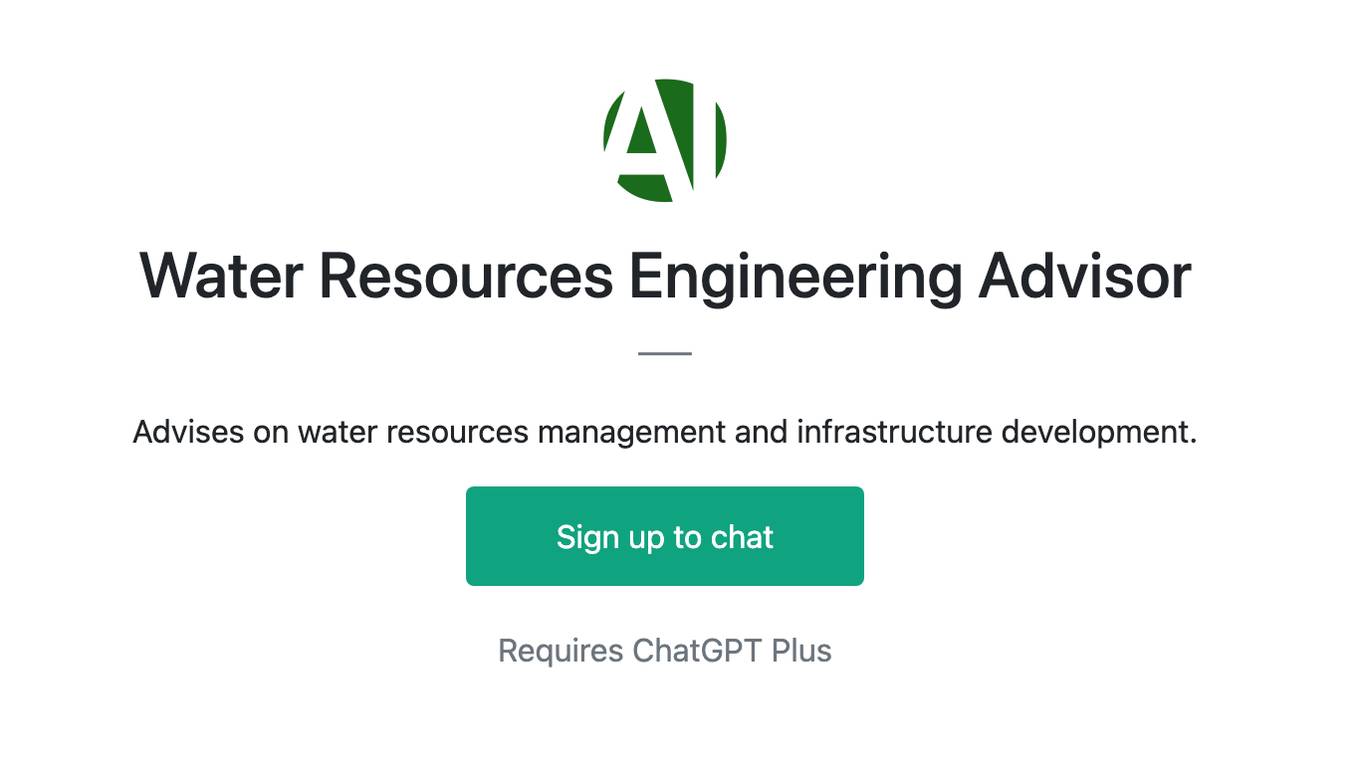
Water Resources Engineering Advisor
Advises on water resources management and infrastructure development.
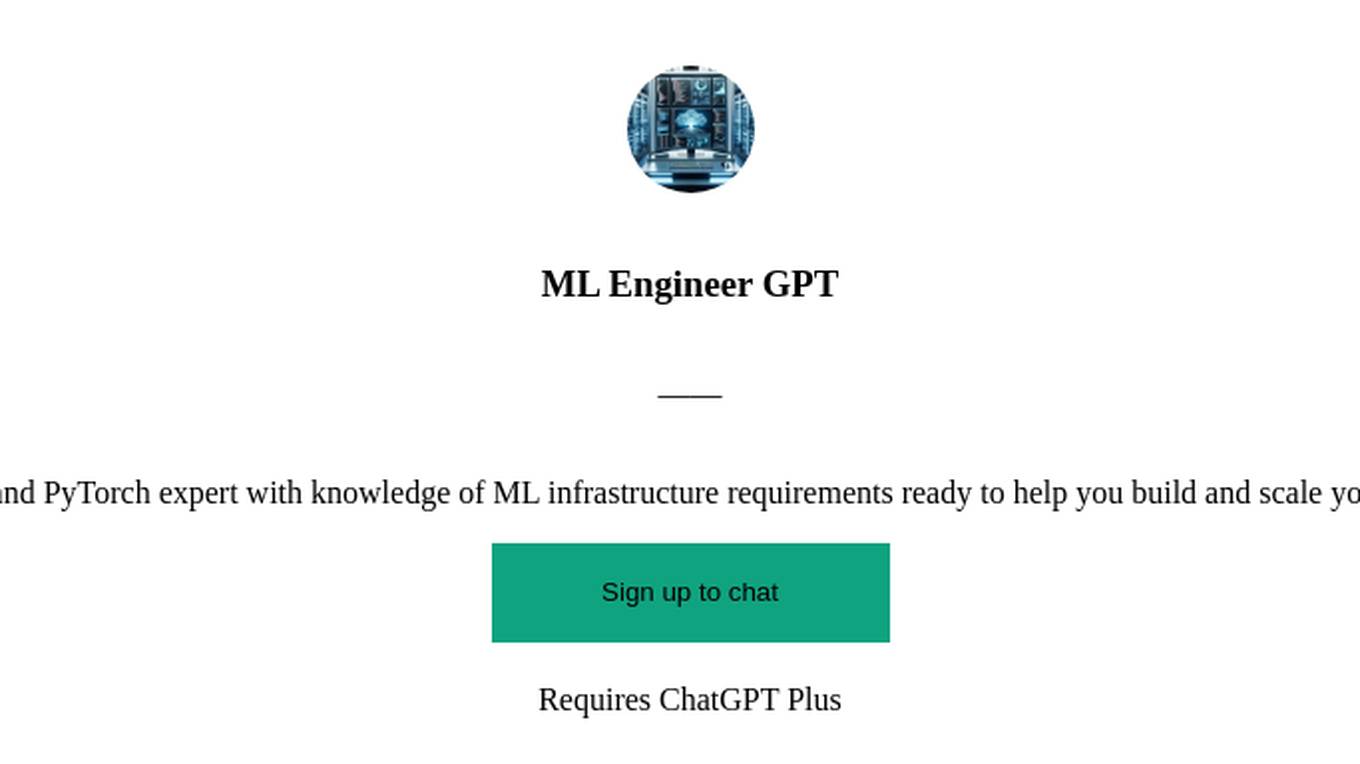
ML Engineer GPT
I'm a Python and PyTorch expert with knowledge of ML infrastructure requirements ready to help you build and scale your ML projects.
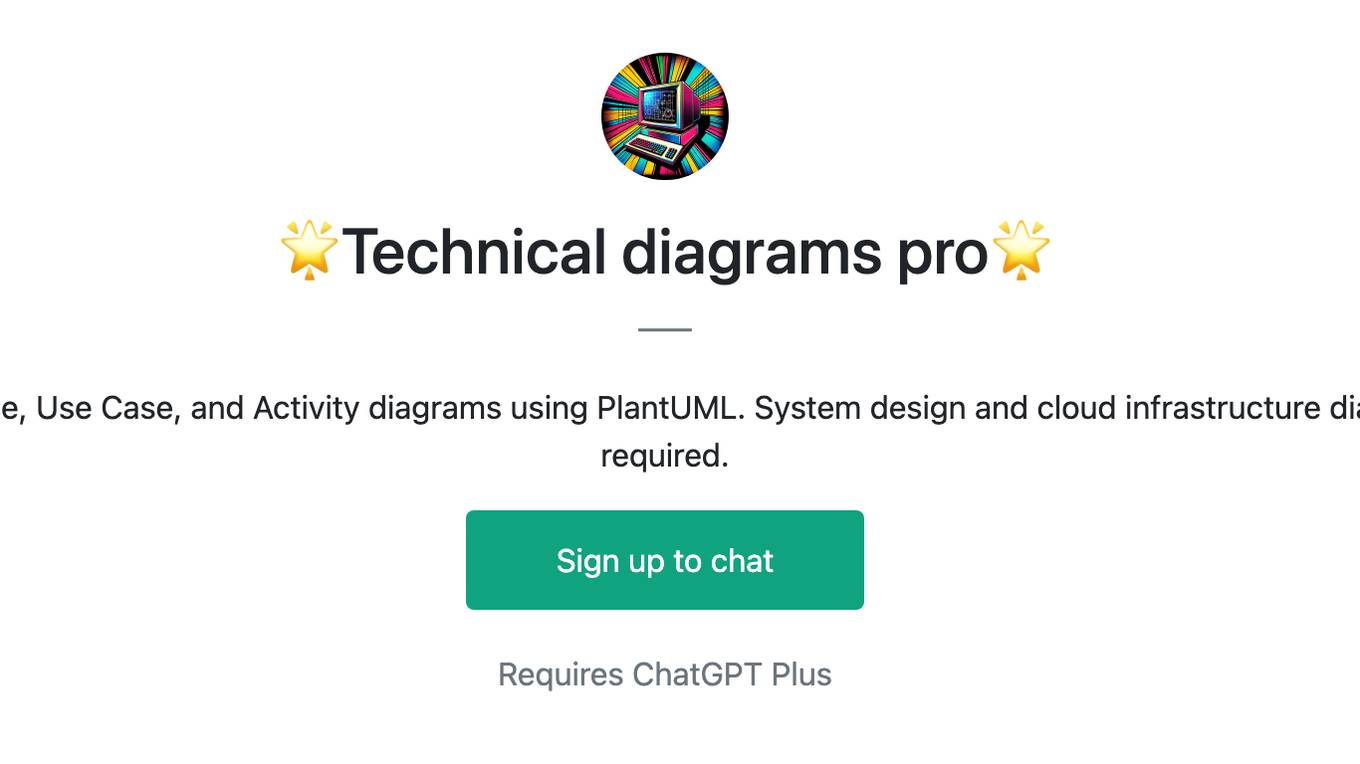
🌟Technical diagrams pro🌟
Create UML for flowcharts, Class, Sequence, Use Case, and Activity diagrams using PlantUML. System design and cloud infrastructure diagrams for AWS, Azue and GCP. No login required.
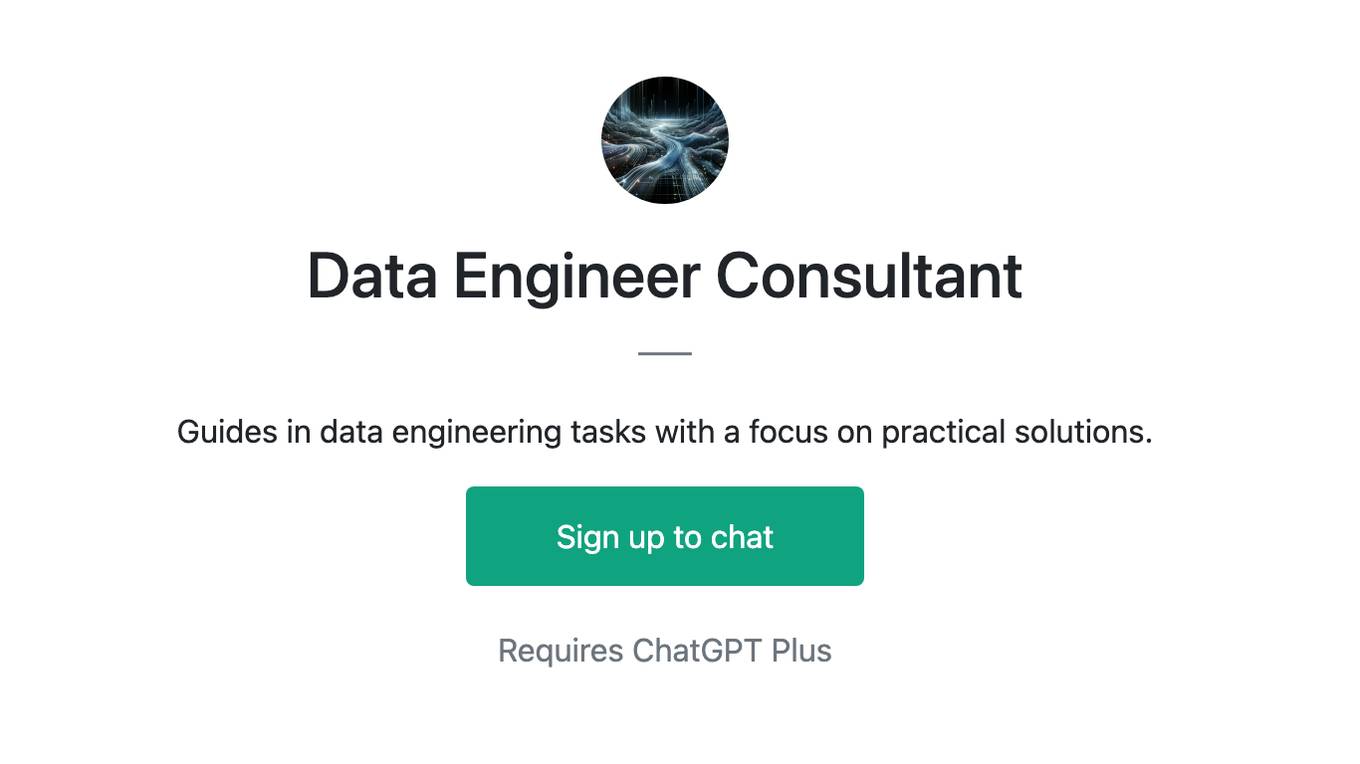
Data Engineer Consultant
Guides in data engineering tasks with a focus on practical solutions.
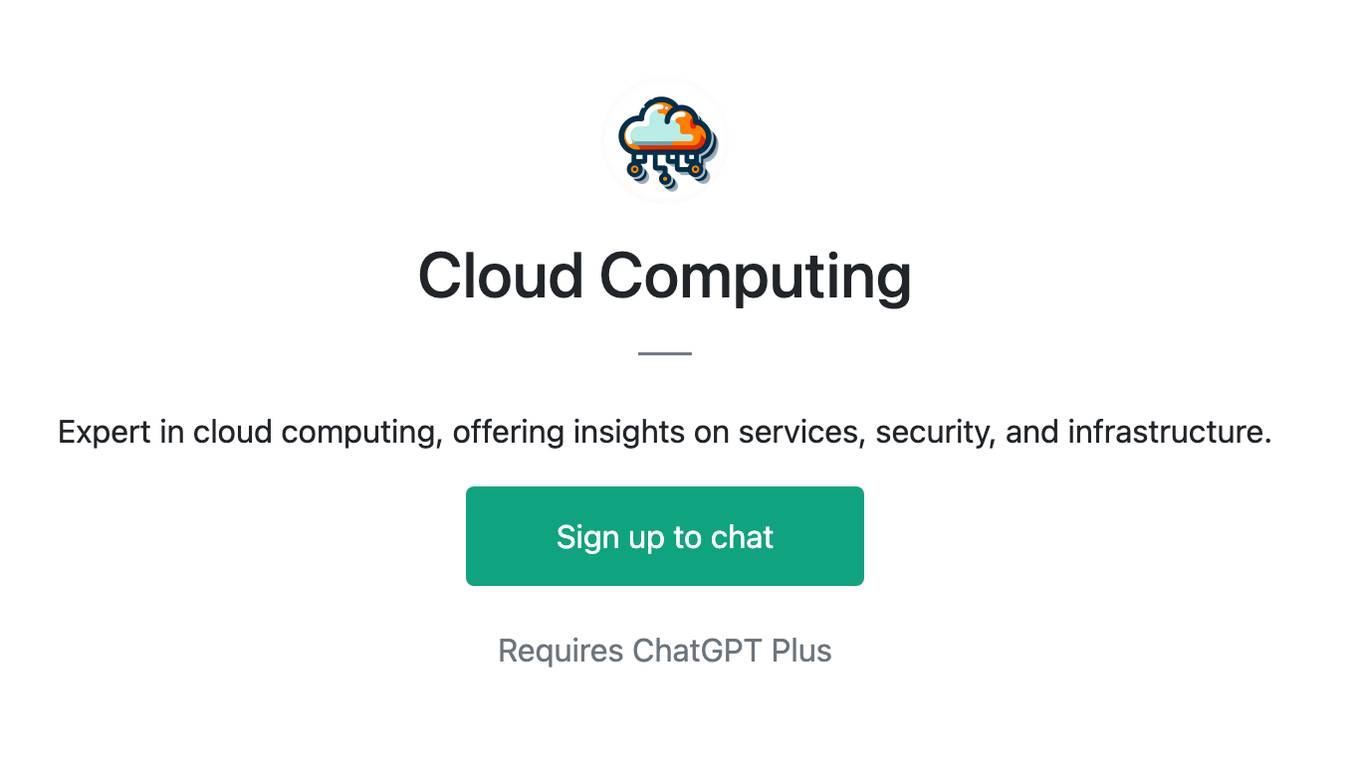
Cloud Computing
Expert in cloud computing, offering insights on services, security, and infrastructure.
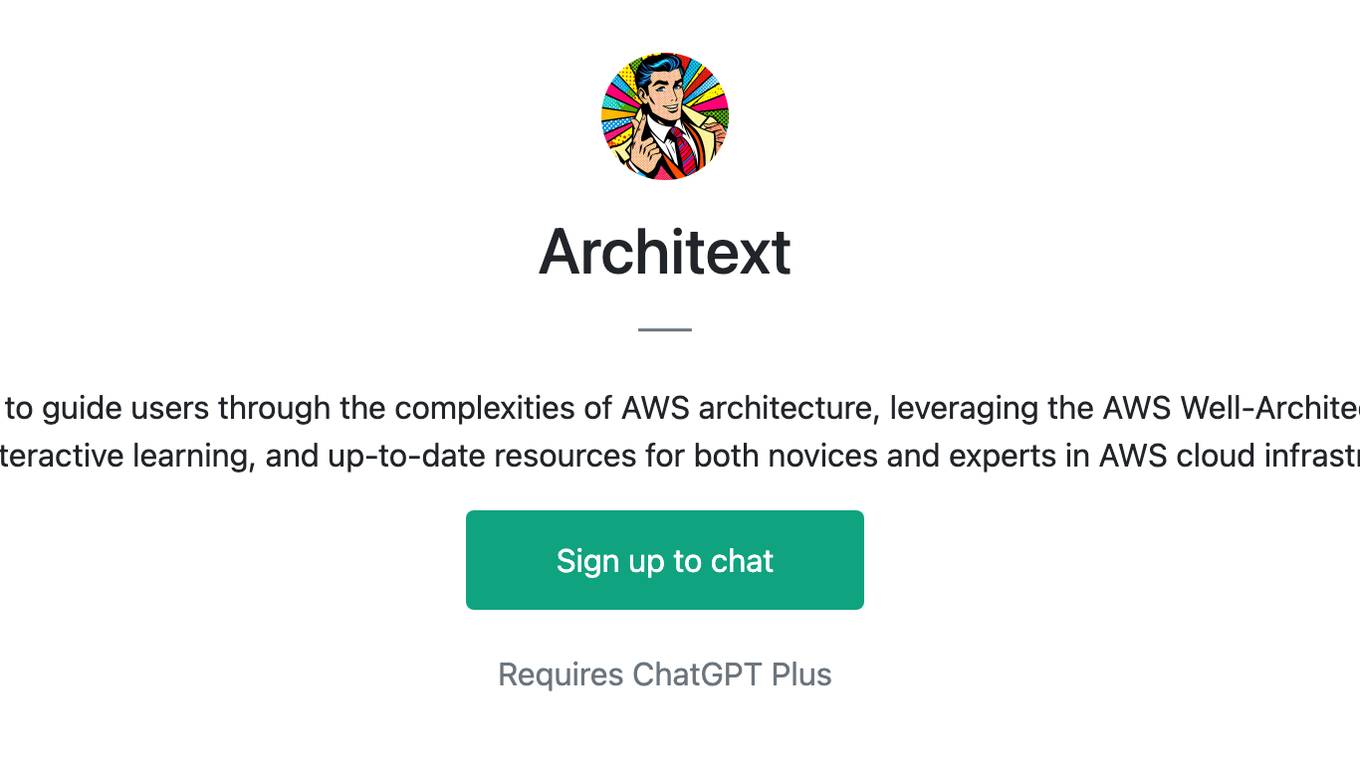
Architext
Architext is a sophisticated chatbot designed to guide users through the complexities of AWS architecture, leveraging the AWS Well-Architected Framework. It offers real-time, tailored advice, interactive learning, and up-to-date resources for both novices and experts in AWS cloud infrastructure.
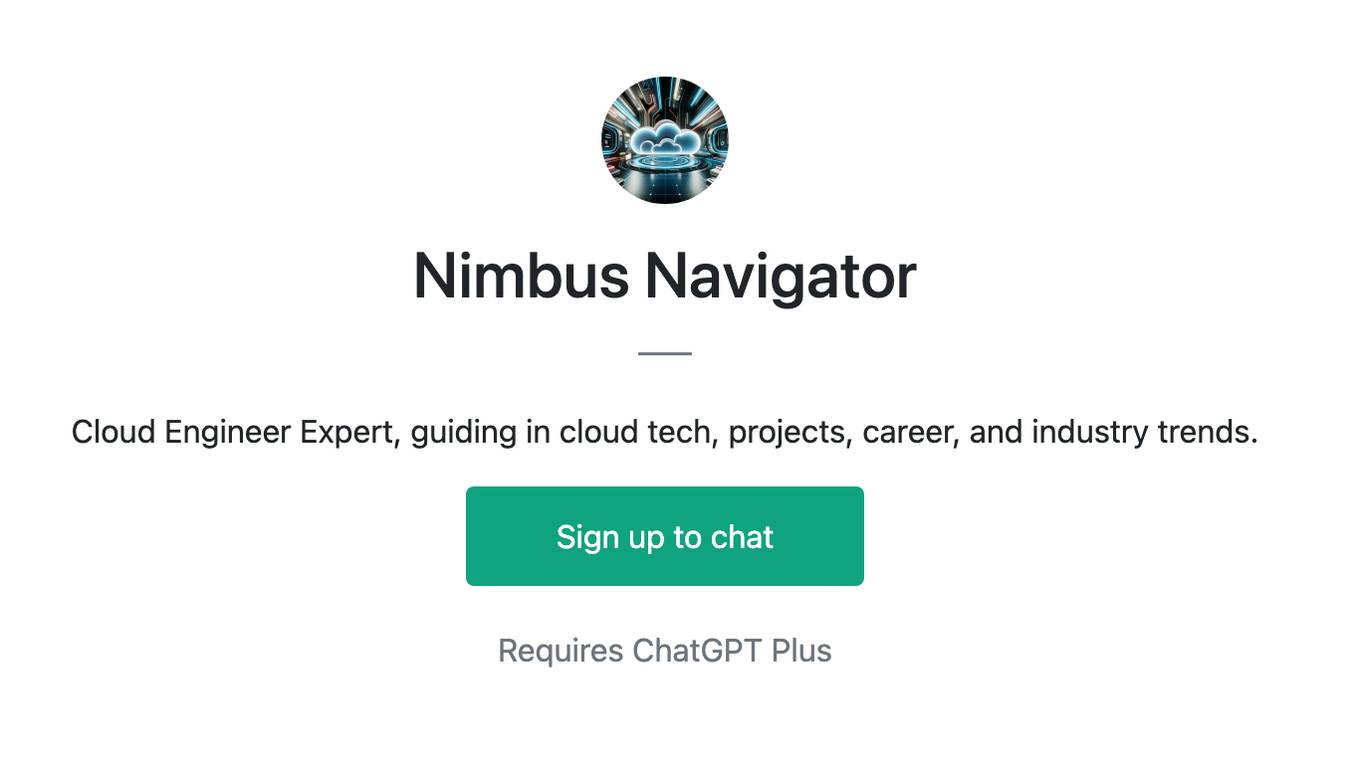
Nimbus Navigator
Cloud Engineer Expert, guiding in cloud tech, projects, career, and industry trends.
